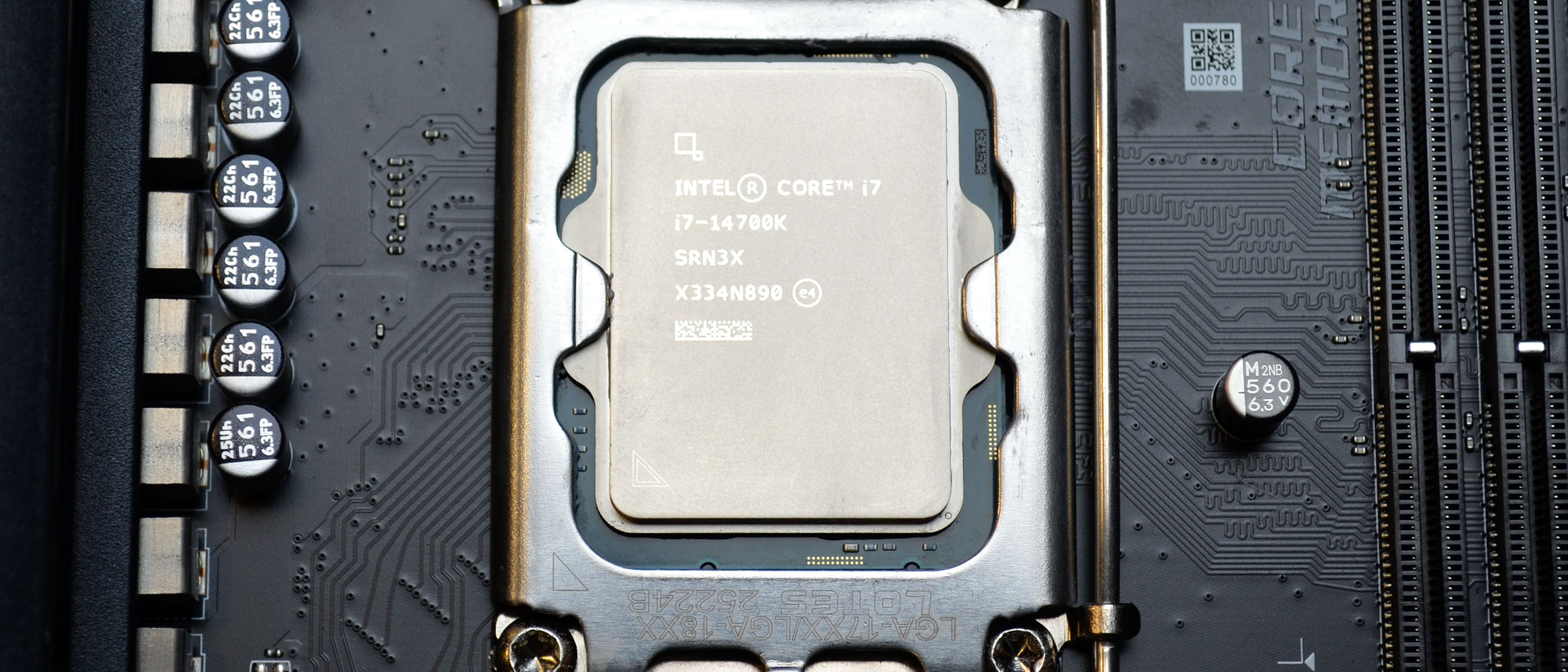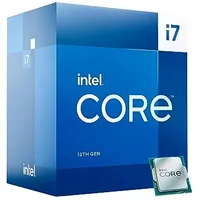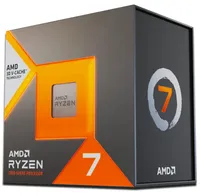TechRadar Verdict
The Intel Core i7-14700K is possibly the only great processor from the Raptor Lake Refresh launch lineup, thanks to a few upgrades that lift it up to i9-13900K levels of performance. It's still only marginally better than its predecessor though, which really highlights how good the 13700K is.
Pros
- +
Core i9-13900K performance at an i7 price
- +
Strongest gaming performance for an Intel chip
- +
Very competitive against AMD's best CPUs
Cons
- -
Only a small improvement in gen-on-gen performance
- -
More power hungry than predecessor
- -
Can run very hot
Why you can trust TechRadar
Intel Core i7-14700K: One-minute review
The Intel Core i7-14700K is the workhorse CPU in the Intel's 14th generation launch line-up, and like any good workhorse, it's going to be the one to do the heavy lifting for this generation of processors. Fortunately for Intel, the Core i7-14700K succeeds in keeping Raptor Lake Refresh from being completely forgettable.
Of all the chips launched on October 17, 2023, the Core i7-14700K is the only one to get a substantive spec upgrade over its predecessor as well as a slight cut in price to just $409 (about £325/AU$595), which is $10 less than the Intel Core i7-13700K it replaces.
So what do you get for $10 less? Gen-on-gen, you don't get a whole lot of improvement (about 6% better performance overall compared to the 13700K), but that figure can be deceiving, since the Core i7-13700K was at the top of our best processor list for a reason.
With the 13700K's performance being within striking distance of the Intel Core i9-13900K, that 6% improvement for the 14700K effectively closes the gap, putting the 14700K within just 3% of the 13900K overall, and even allowing it to pull ahead in average gaming performance, losing out to only the AMD Ryzen 7 7800X3D.
Fortunately for Intel, the Core i7-14700K succeeds in keeping Raptor Lake Refresh from being completely forgetable.
In terms of productivity and general performance, the Core i7-14700K shines as well, going toe to toe with the best AMD processors like the AMD Ryzen 9 7950X and AMD Ryzen 9 7950X3D, giving it a very strong claim on being the best Intel processor processor for most people.
Given its excellent mix of performance and price, the Intel Core i7-14700K could very well be the last Intel chip of the LGA 1700 epoch that anyone should consider buying, especially if you're coming from a 12th-gen chip.
With the Core i9-13900K outperforming the Intel Core i9-12900K by as much as 25% in some workloads, someone coming off an i9-12900K or lower will find it hard to believe that an i7 could perform this well, but that's where we're at. And with the i7-14700K coming in about 30% cheaper than the Intel Core i9-14900K, while still managing to come remarkably close in terms of its performance, the Intel Core i7-14700K is the Raptor Lake Refresh chip to buy if you're going to buy one at all.
Sign up for breaking news, reviews, opinion, top tech deals, and more.
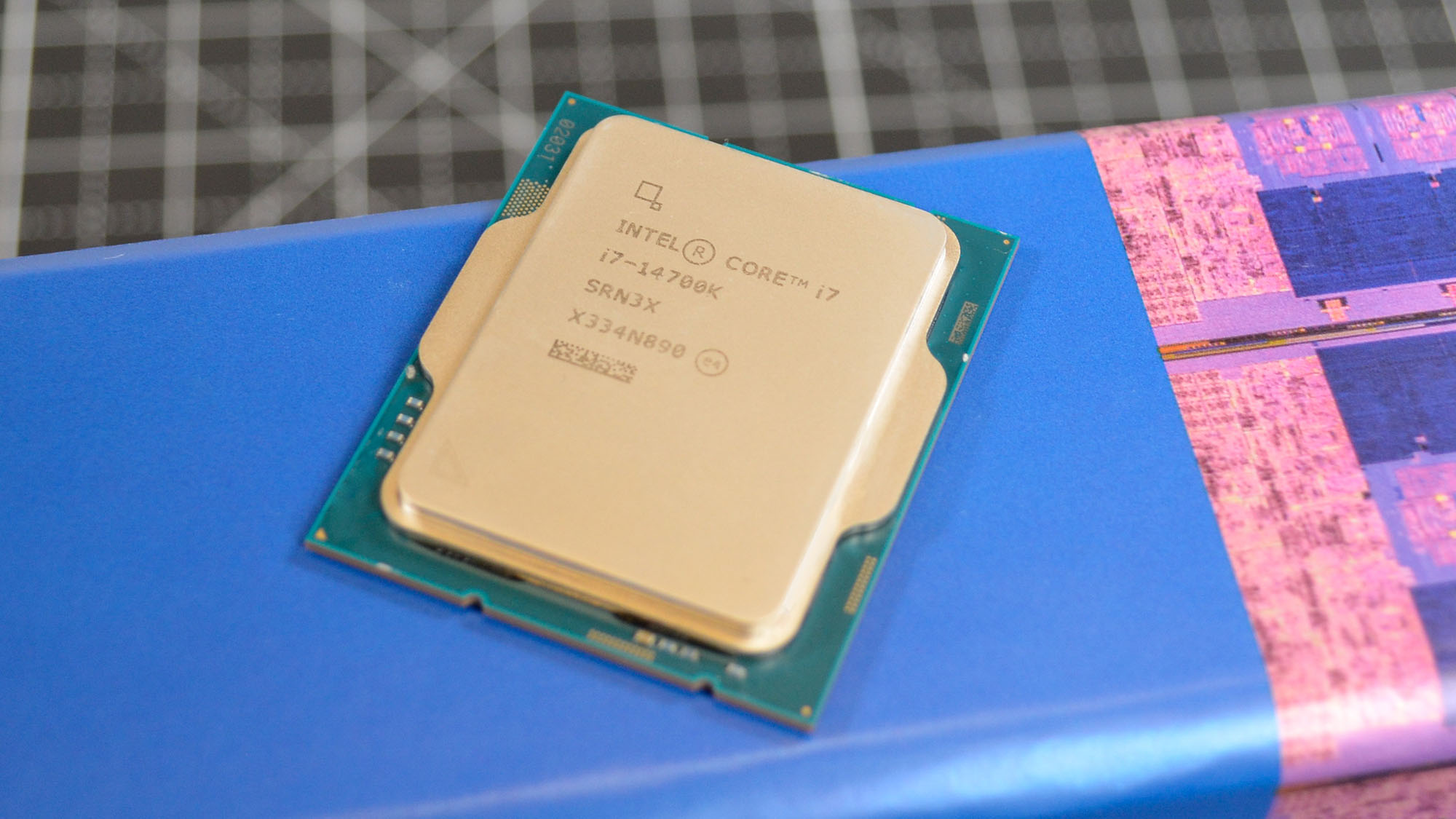
Intel Core i7-14700K: Price & availability
- How much does it cost? US MSRP $409 (about £325/AU$595)
- When is it out? October 17, 2023
- Where can you get it? You can get it in the US, UK, and Australia
The Intel Core i7-14700K is available on October 17, 2023, with a US MSRP of $409 (about £325/AU$595), which is a slight decrease from its predecessor's MSRP of $419 (about £335/AU$610), and about 31% lower than the Intel Core i9-14900K and 32% percent lower than the AMD Ryzen 9 7950X.
It's also cheaper than the AMD Ryzen 7 7800X3D, and just $10 more expensive than the AMD Ryzen 7 7700X, putting it very competitively priced against processors in its class.
The comparisons against the Core i9 and Ryzen 9 are far more relevant, however, since these are the chips that the Core i7-14700K are competing against in terms of performance, and in that regard, the Intel Core i7-14700K is arguably the best value among consumer processors currently on the market.
- Price score: 4 / 5
Intel Core i7-14700K: Specs & features
- Four additional E-Cores
- Slightly faster clock speeds
- Increased Cache
- Discrete Wi-Fi 7 support
| Header Cell - Column 0 | Intel Core i7-14700K | Intel Core i7-13700K |
|---|---|---|
| Performance Cores | 8 | 8 |
| Efficiency Cores | 12 | 8 |
| Threads | 28 | 24 |
| P-Core Base Clock | 3.40GHz | 3.40GHz |
| P-Core Boost Clock | 5.50GHz | 5.40GHz |
| E-Core Base Clock | 2.50GHz | 2.50GHz |
| E-Core Boost Clock | 4.30GHz | 4.20GHz |
| Cache | 61MB | 54MB |
| TDP | 125W | 125W |
| Motherboard Socket | LGA 1700 | LGA 1700 |
The Intel Core i7-14700K is the only processor from Intel's Raptor Lake Refresh launch line-up to get a meaningful spec upgrade.
Rather than the eight performance and eight efficiency cores like the i7-13700K, the i7-14700K comes with eight performance cores and 12 efficiency cores, all running with a slightly higher turbo boost clock for extra performance. The i7-14700K also has something called Turbo Boost Max Technology 3.0, which is a mouthful but also gives the best performing P-core an extra bump up to 5.6GHz so long as the processor is within power and thermal limits.
The increased core count also adds 7MB of additional L2 cache for the efficiency cores to use, further improving their performance over the 13700K's, as well as four additional processing threads for improved multitasking.
It has the same TDP of 125W and same Max Turbo Power rating of 253W as the 13700K, with the latter being the upper power limit of sustained (greater than one second) power draw for the processor. This ceiling can be breached, however, and processing cores can draw much more power in bursts as long as 10ms when necessary.
There is also support for discrete Wi-Fi 7 and Bluetooth 5.4 connectivity, as well as discrete Thunderbolt 5 wired connections, so there is a decent bit of future proofing in its specs (Editor's Note: Intel has since reached out to correct its original announcement to add that the recently released 14th-gen desktop chips will not, in fact, support Thunderbolt 5).
- Chipset & features score: 4 / 5
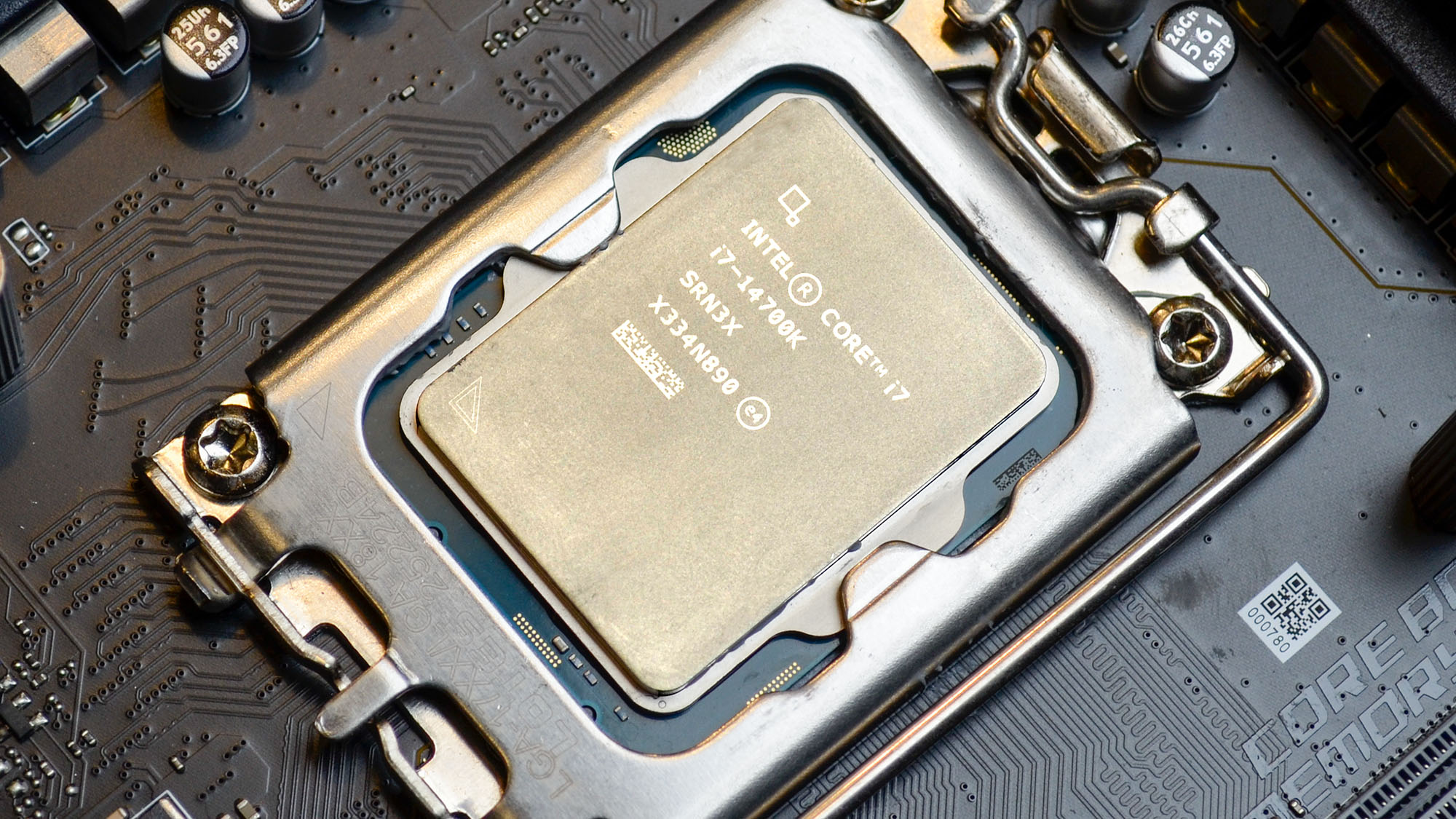
Intel Core i7-14700K: Performance
- Outstanding performance on par with the i9-13900K
- Best gaming performance of any Intel processor
- More power hungry than predecessor, so also runs hotter
The Intel Core i7-14700K is arguably the best performing midrange processor on the market, coming within striking distance of the Core i9-13900K and Ryzen 9 7950X across most workloads, including very strong multi core performance thanks to the addition of four extra efficiency cores.
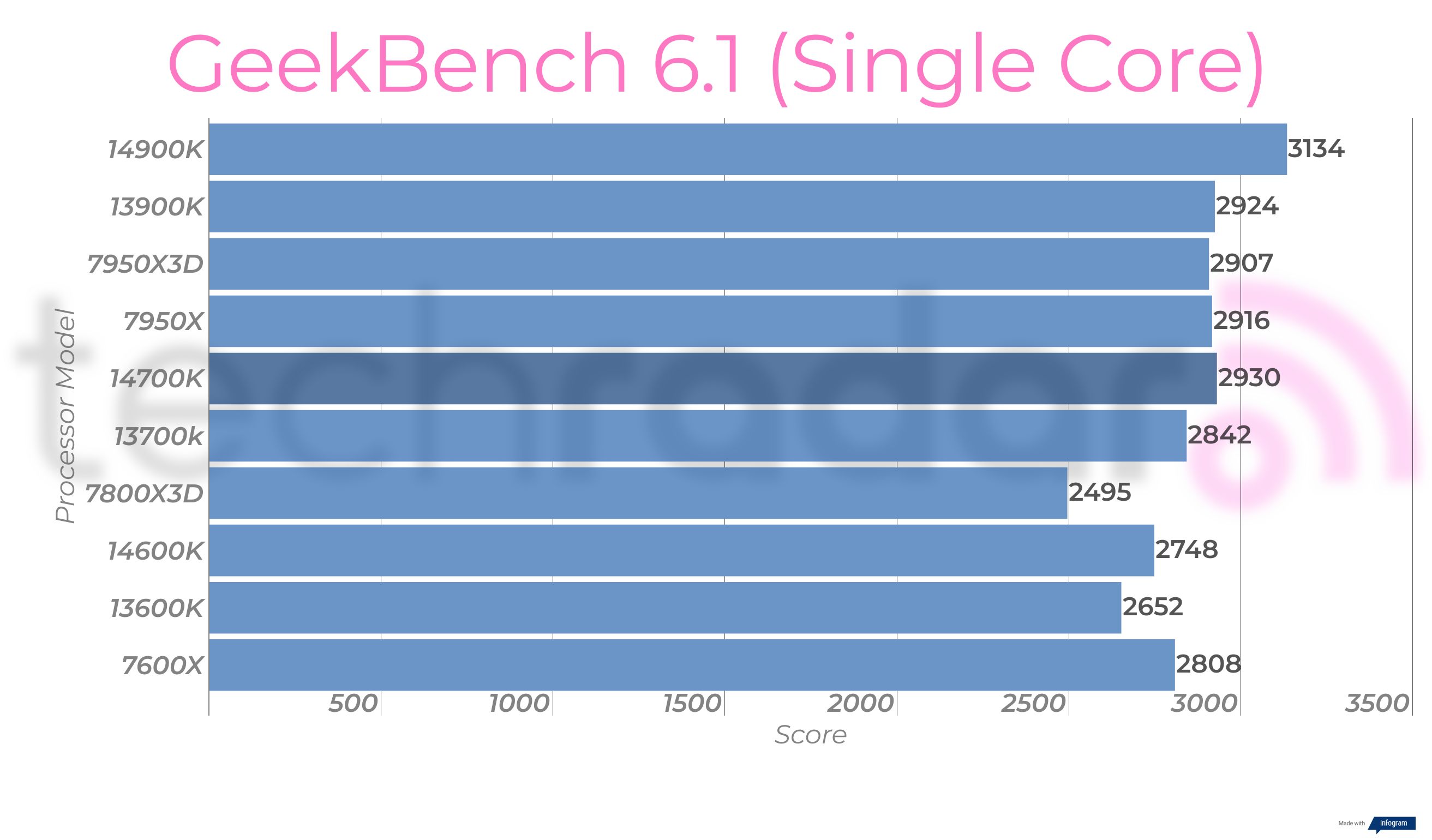
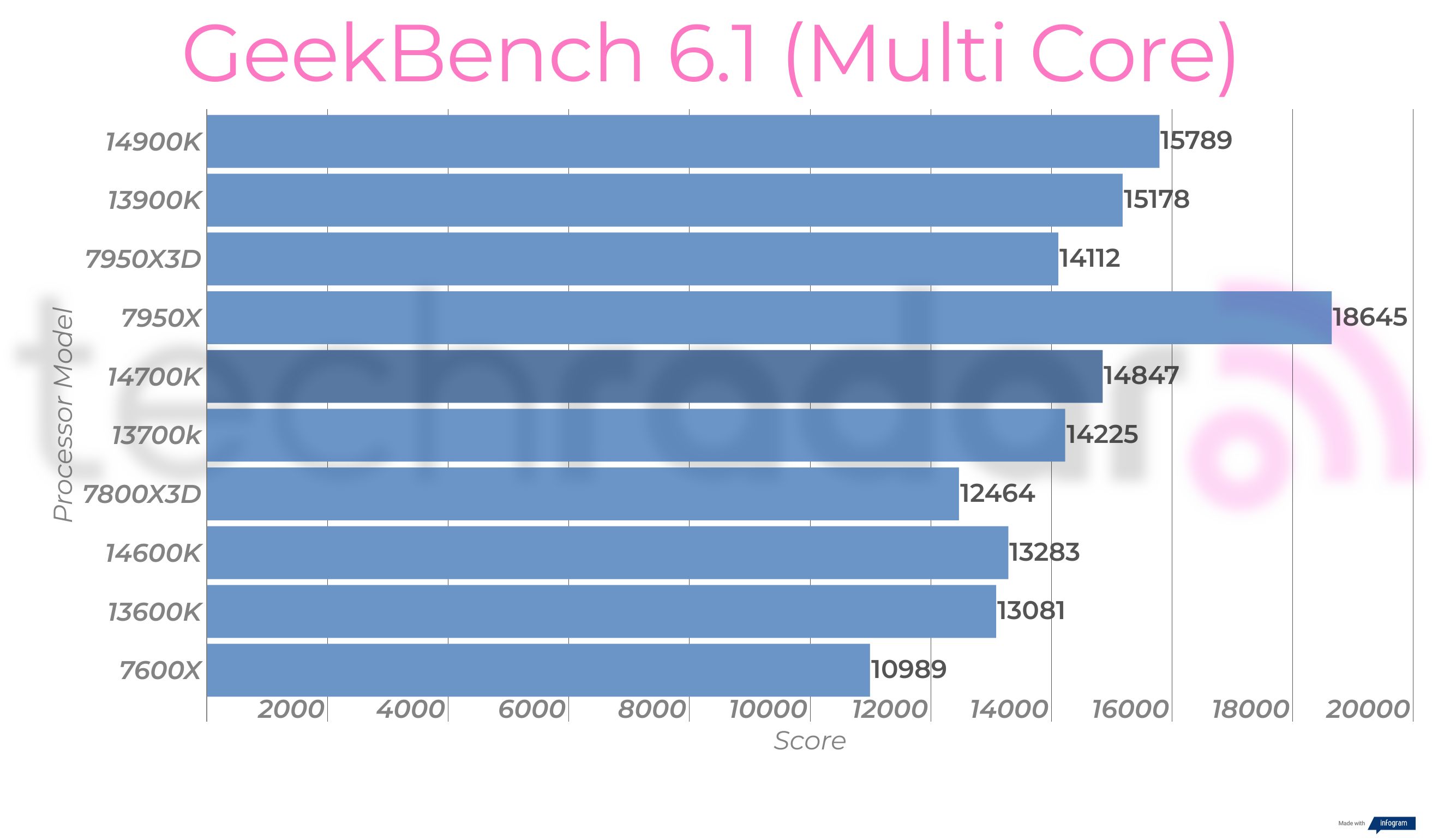
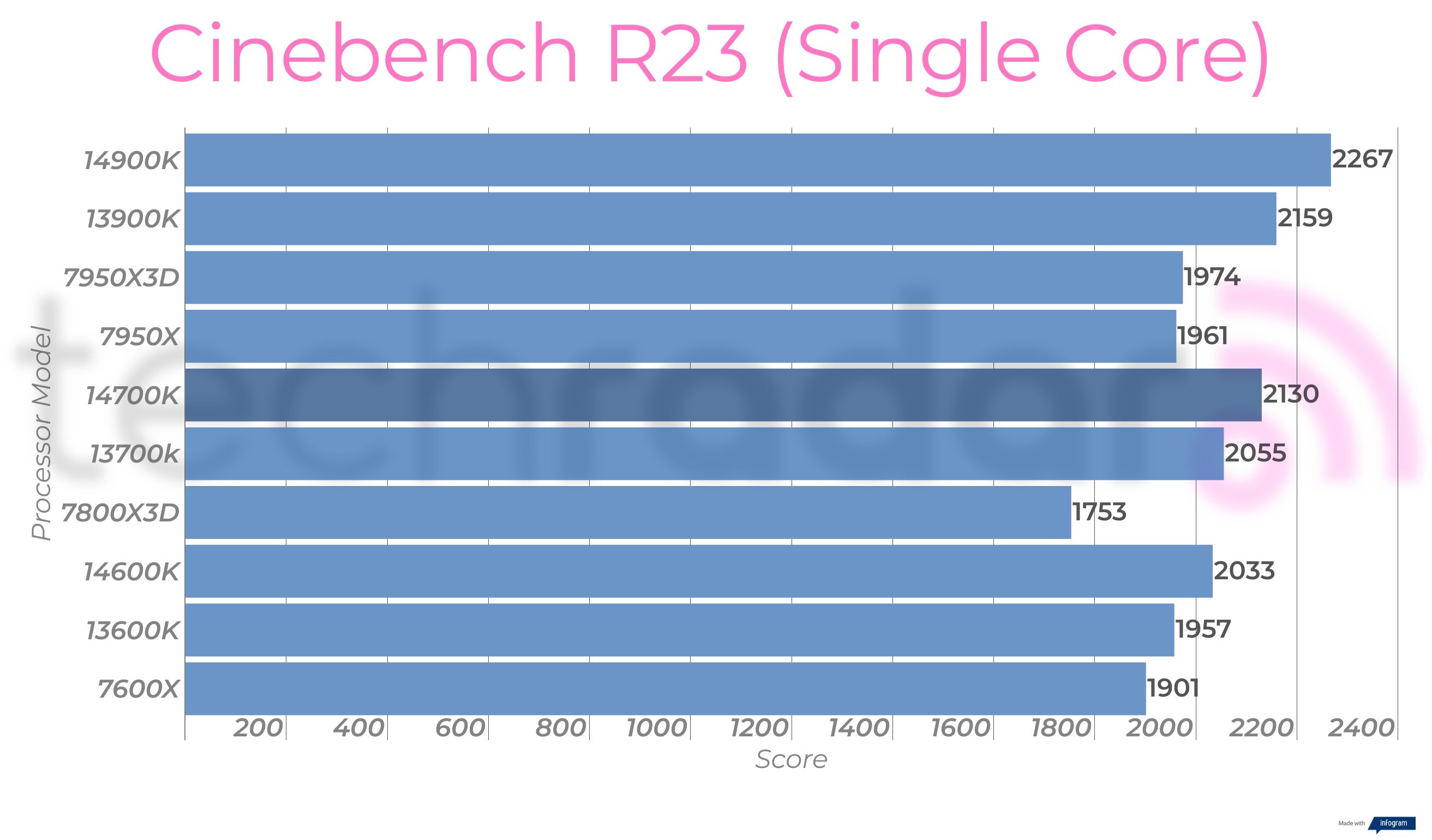
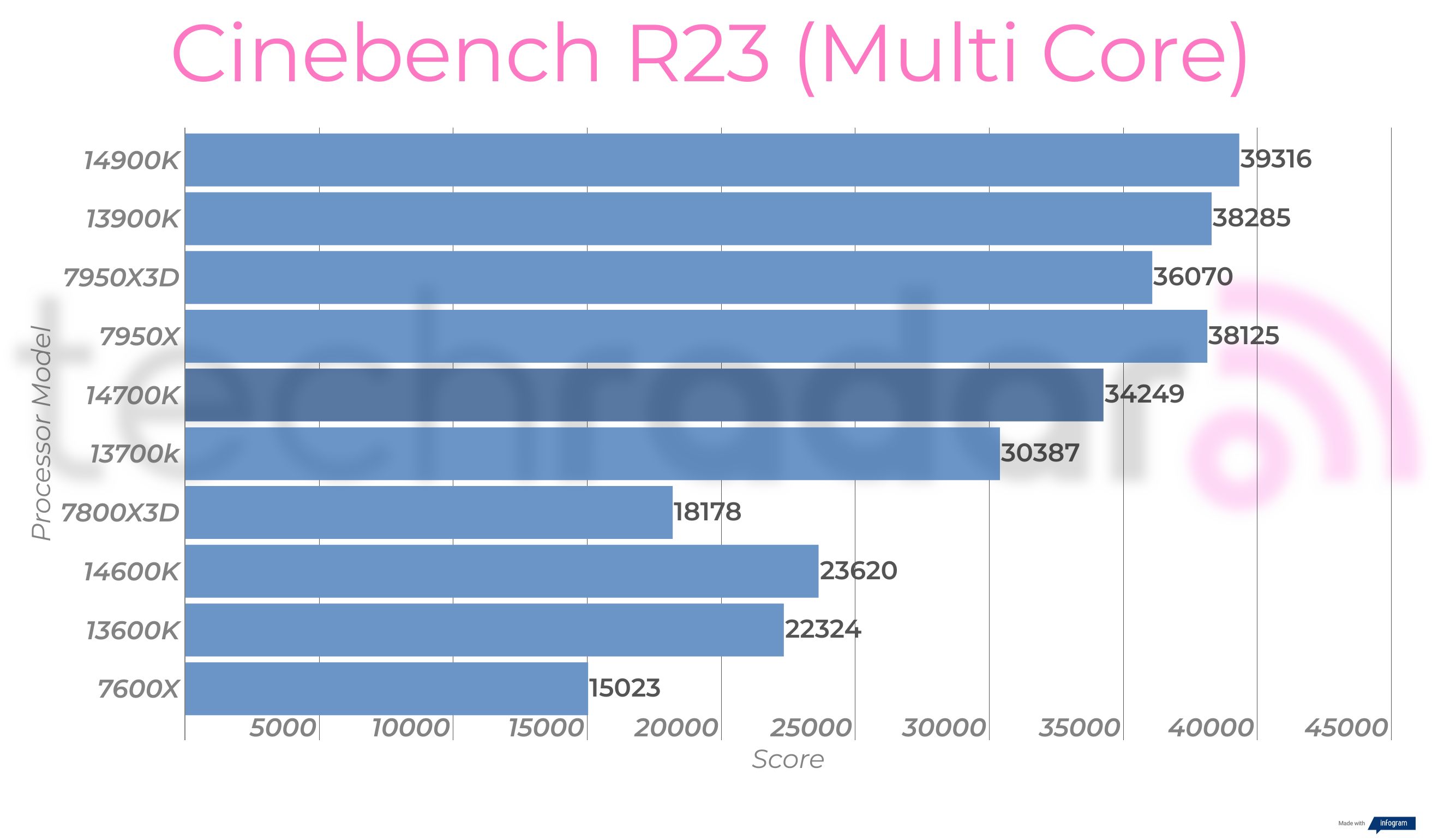
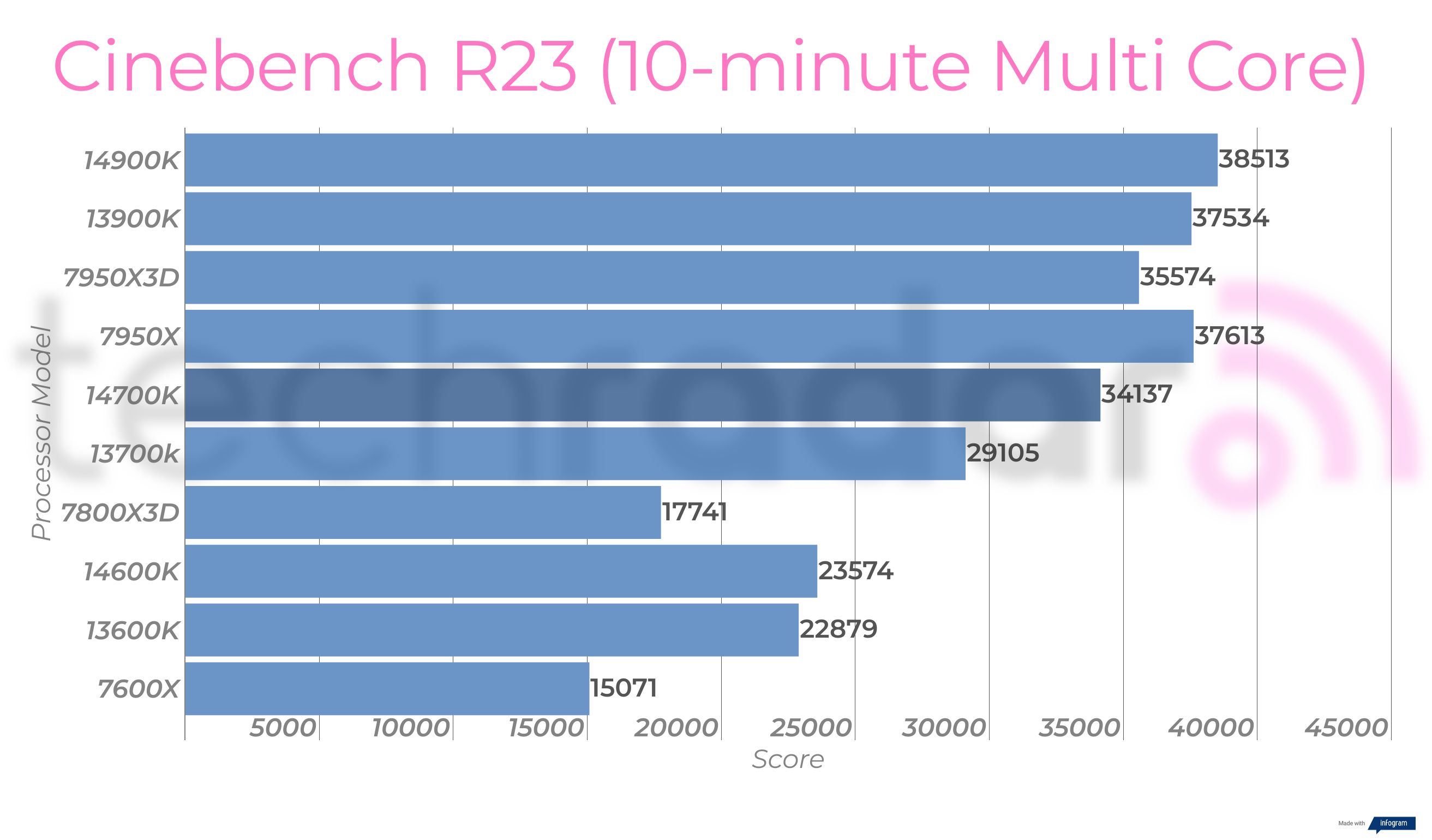
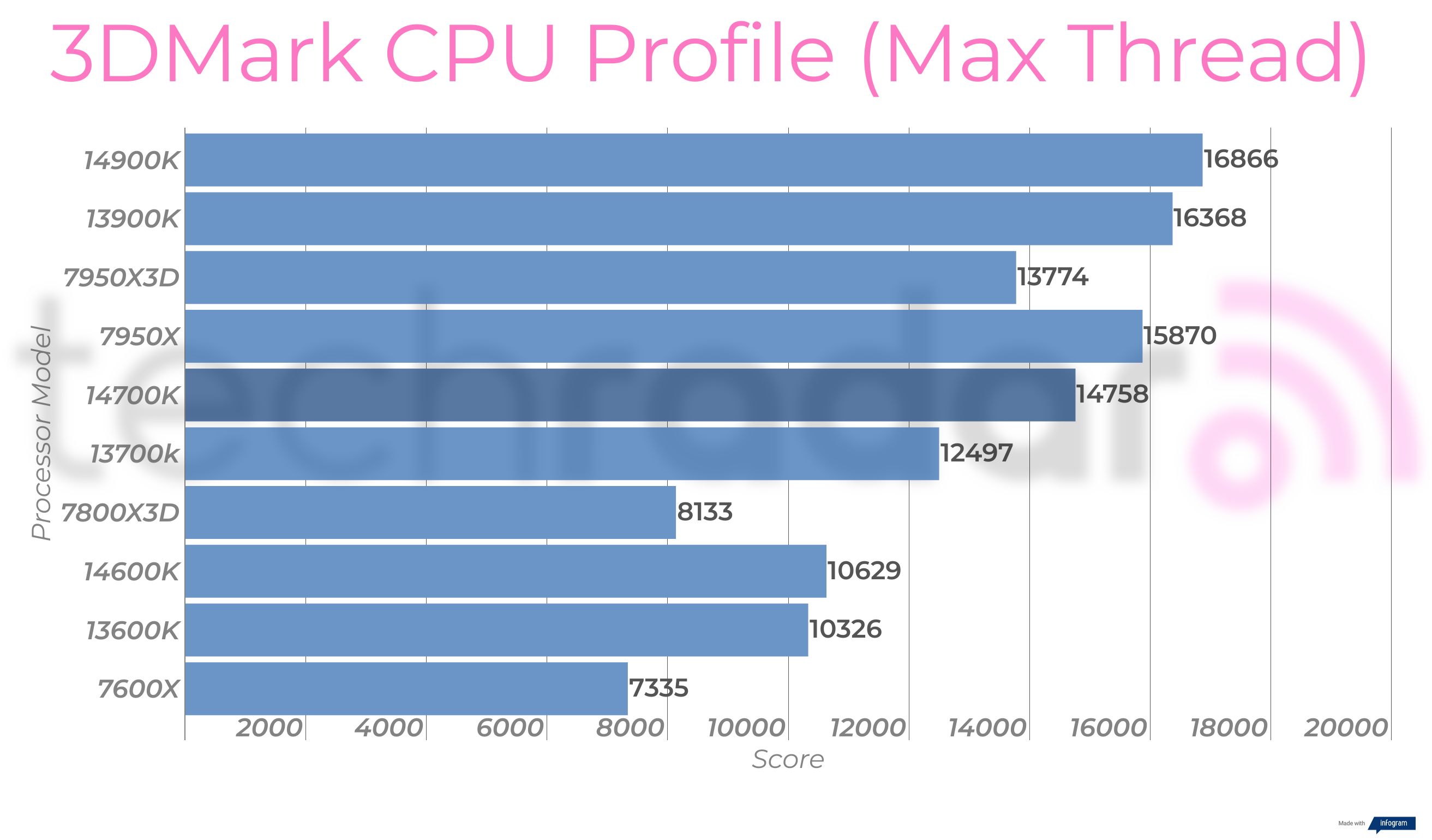
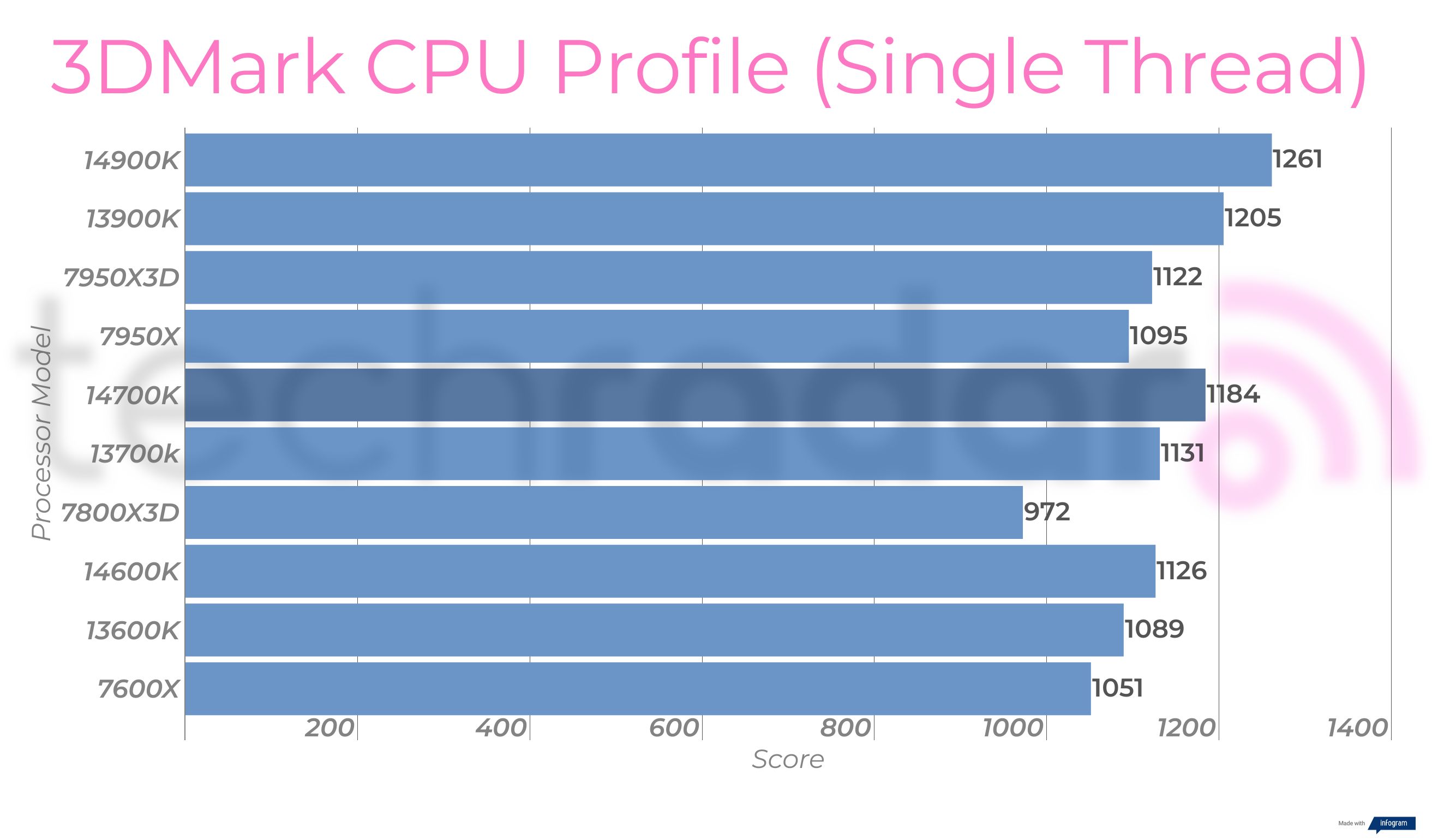
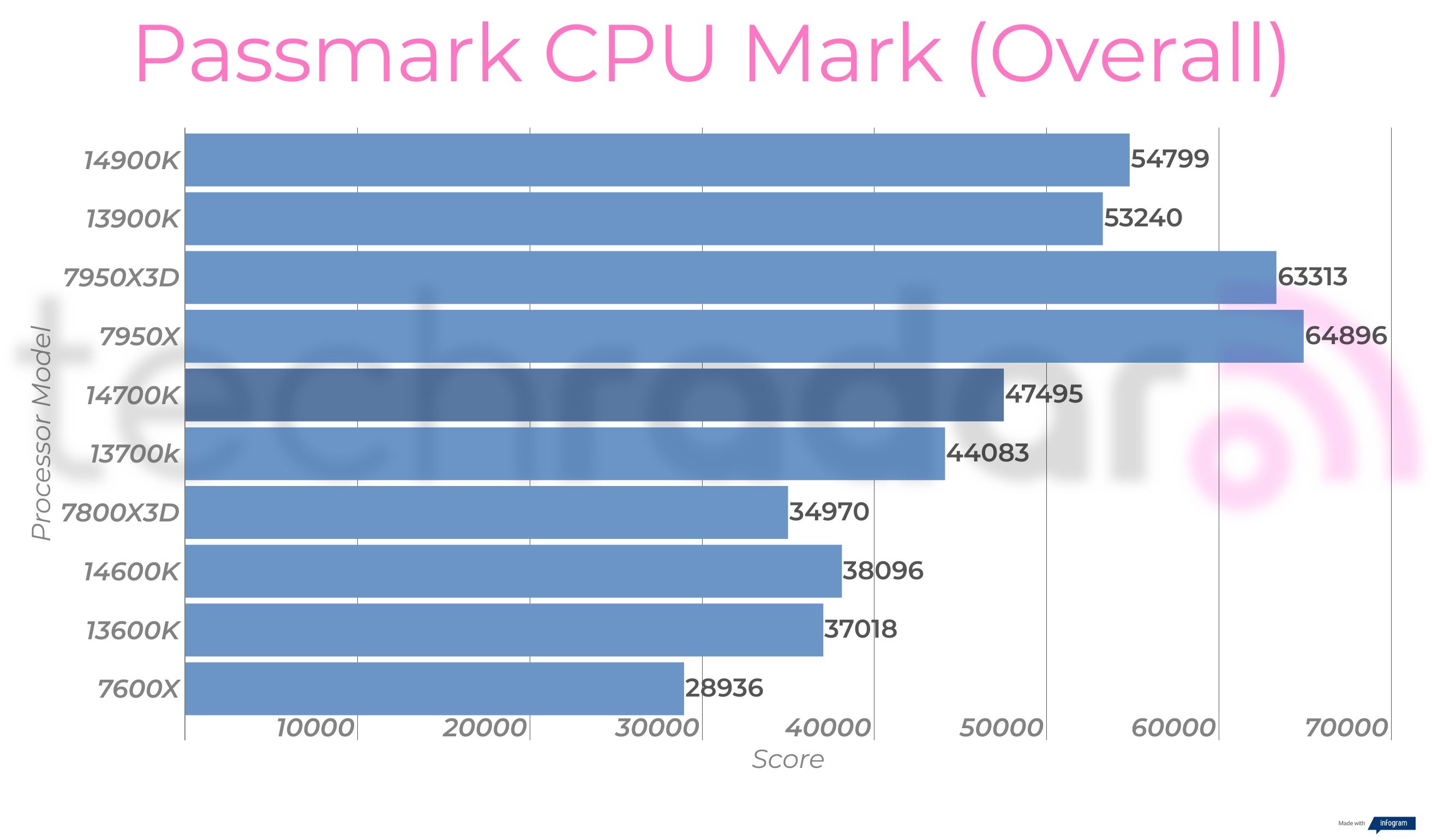
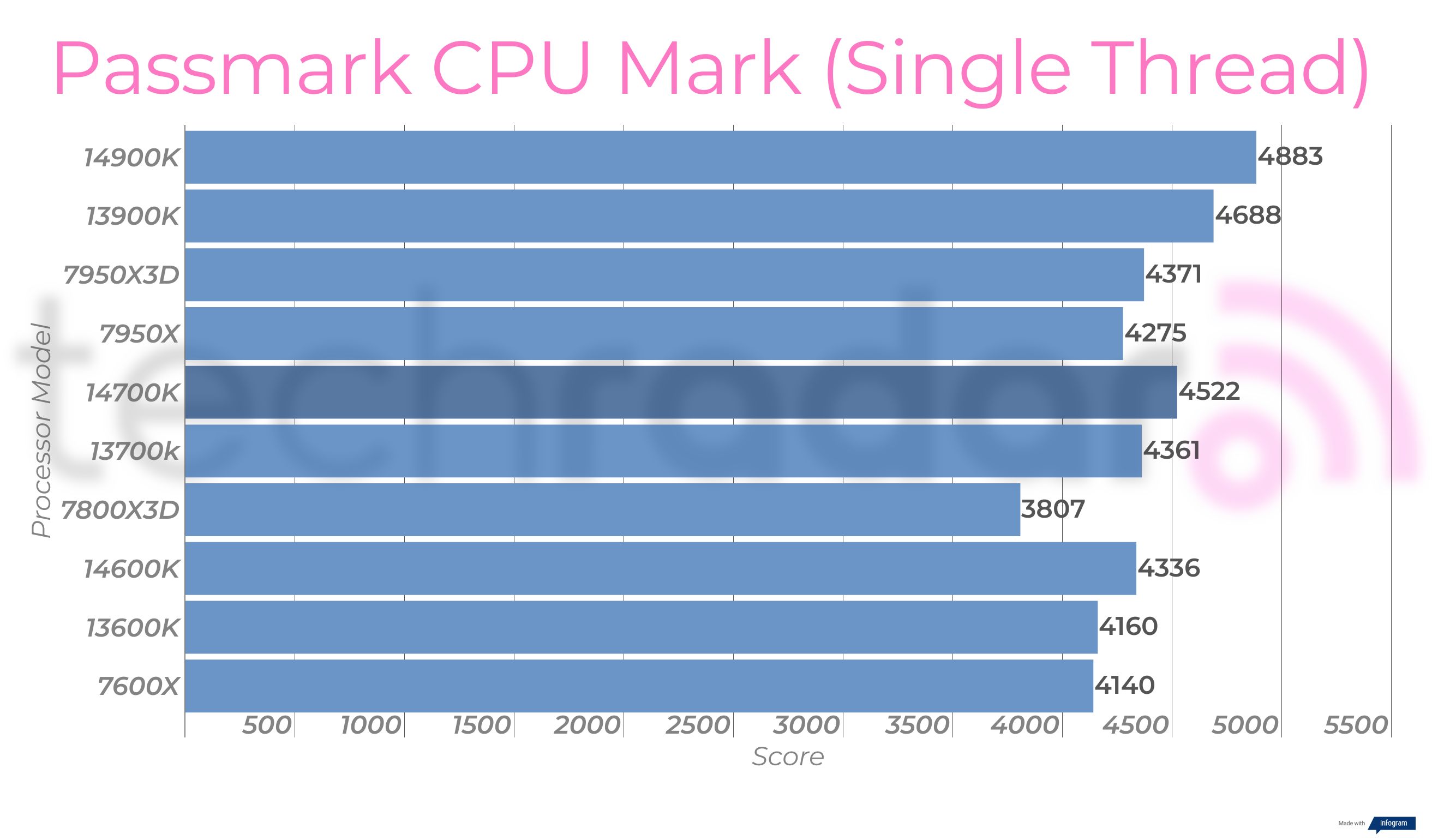
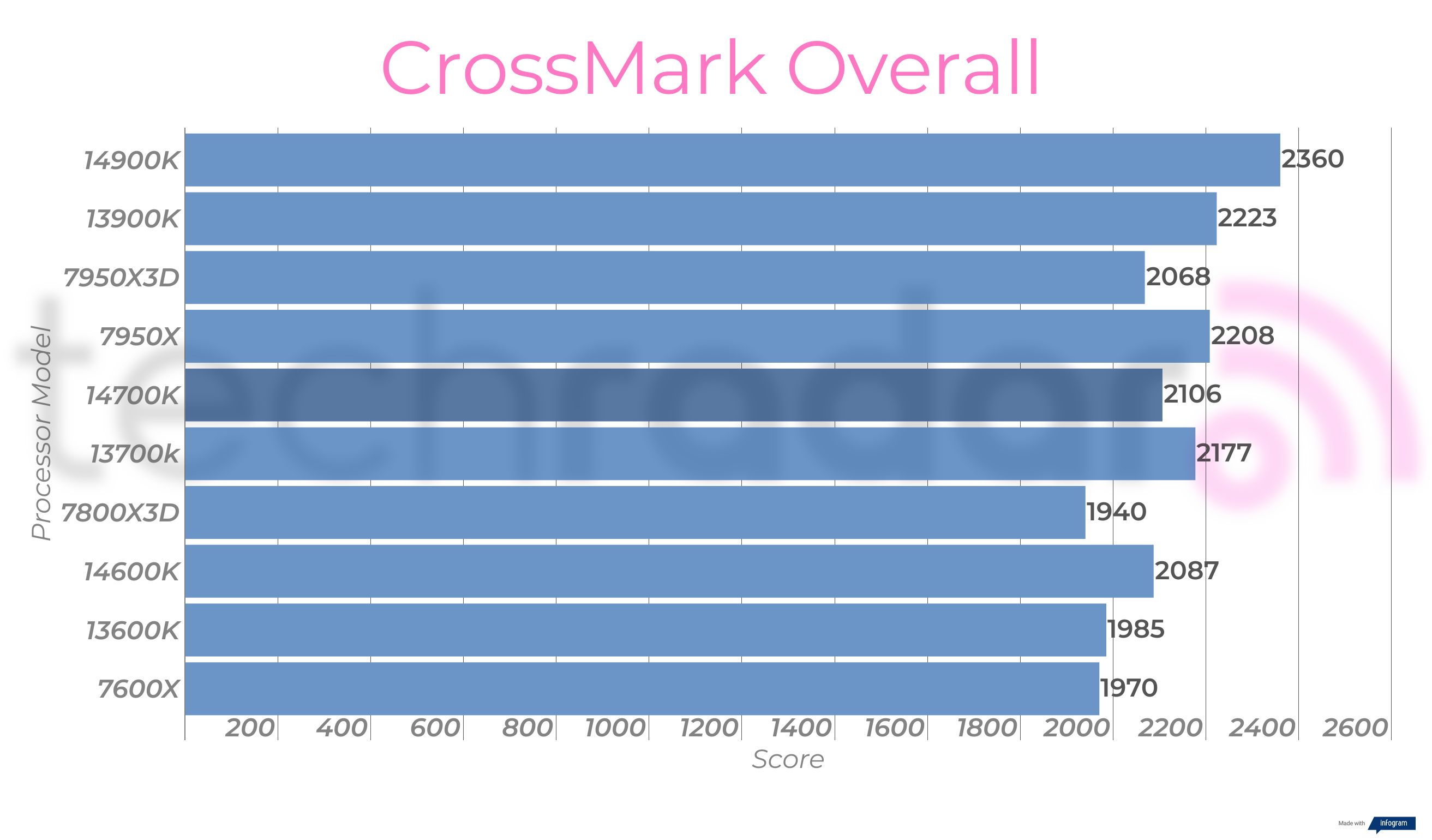
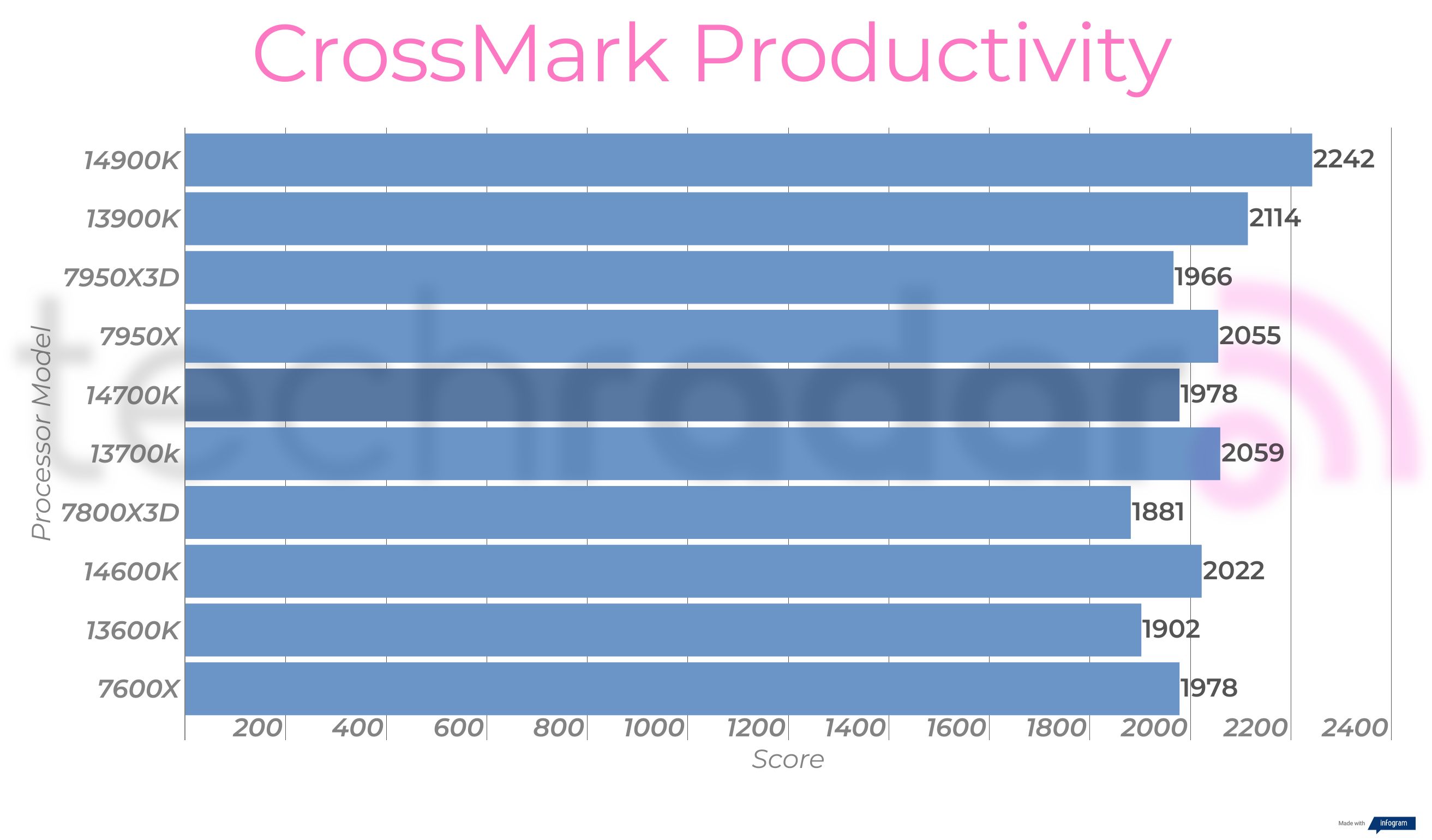
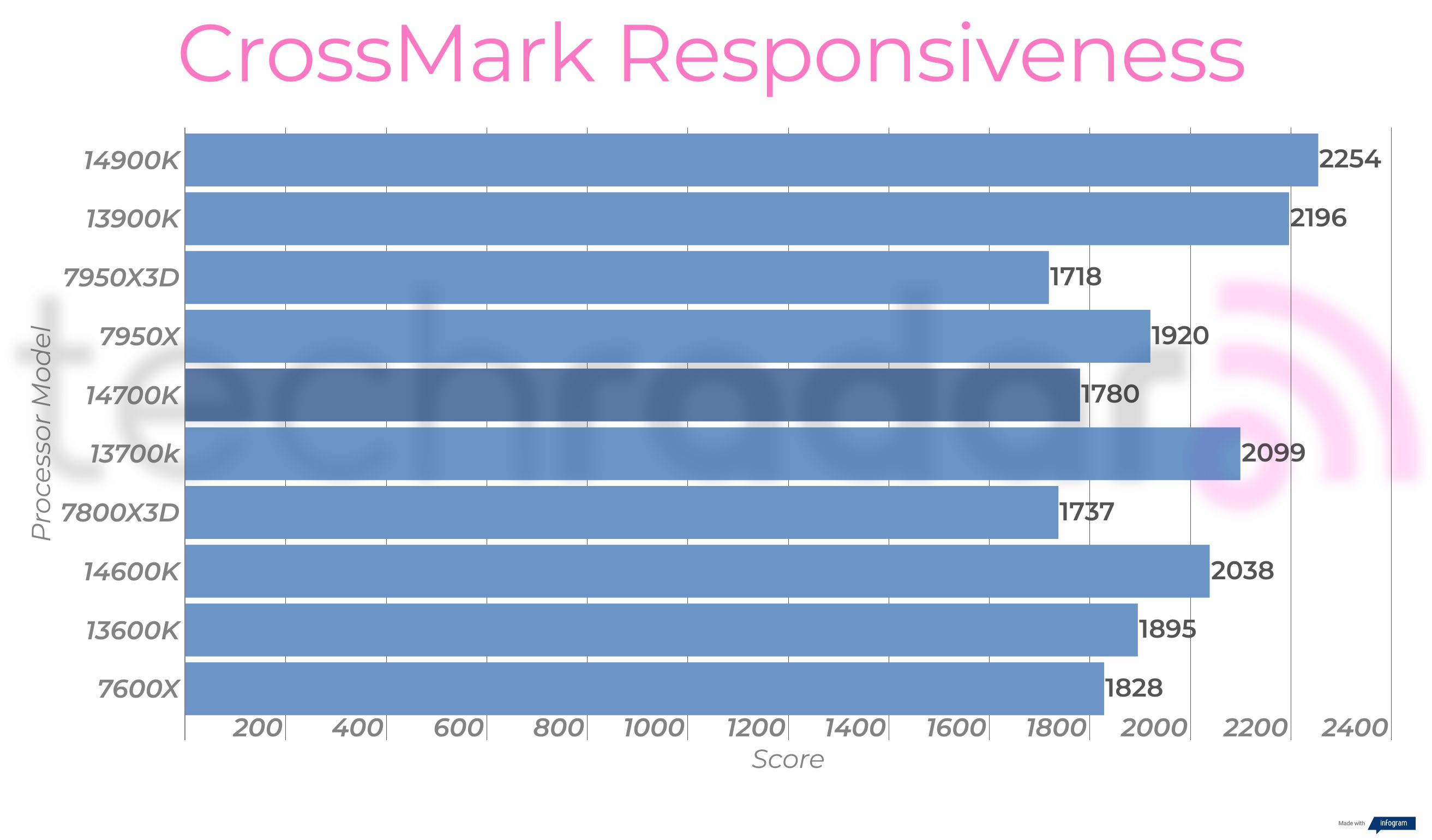
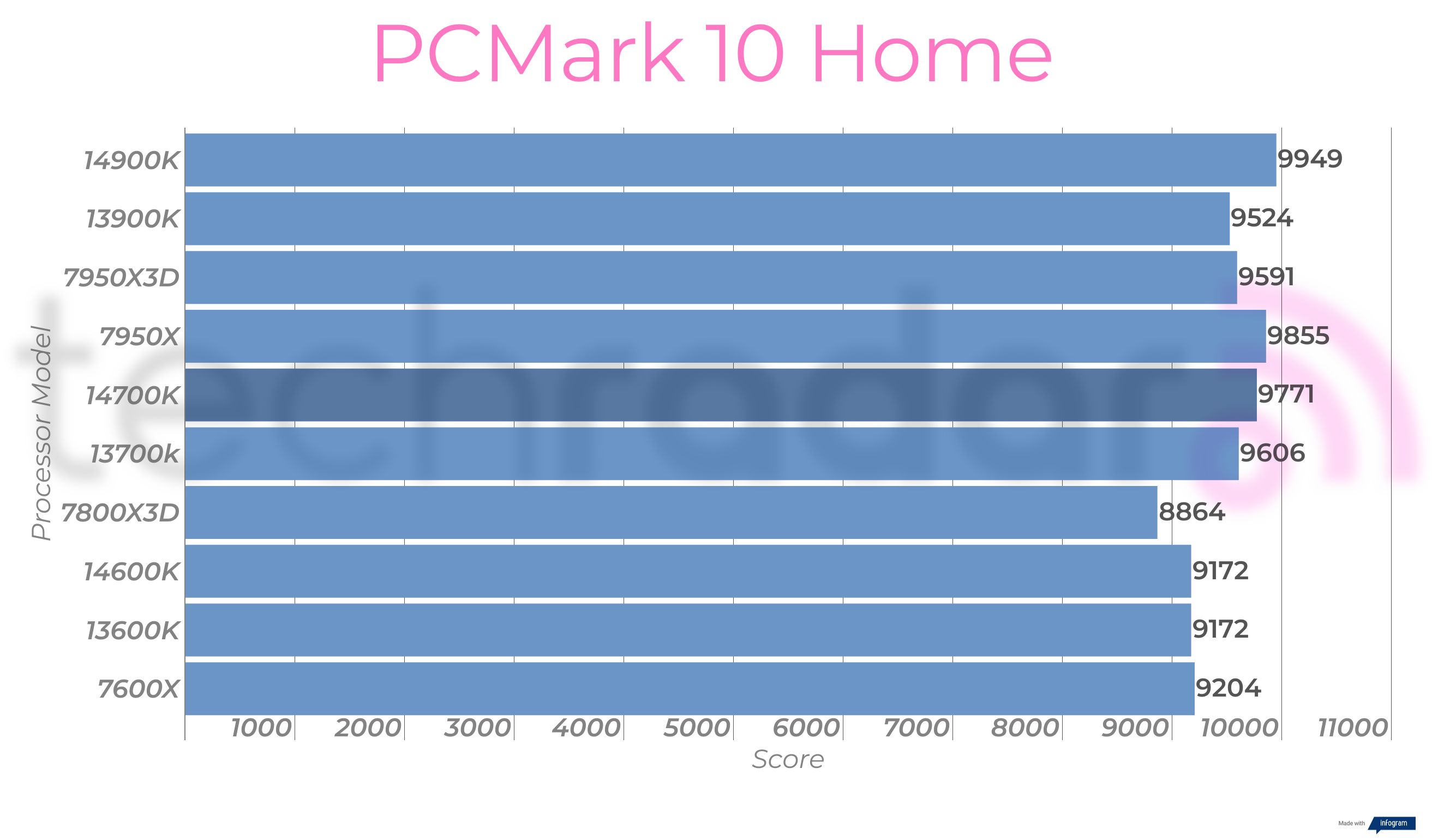
The strongest synthetic benchmarks for the 14700K are single core workloads, which puts it effectively level with the Core i9-13900K and often beating the Ryzen 9 7950X and 7950X3D chips handily.
This translates into better dedicated performance, rather than multitasking, but even there the Core i7-14700K does an admirable just keeping pace with chips with much higher core counts.
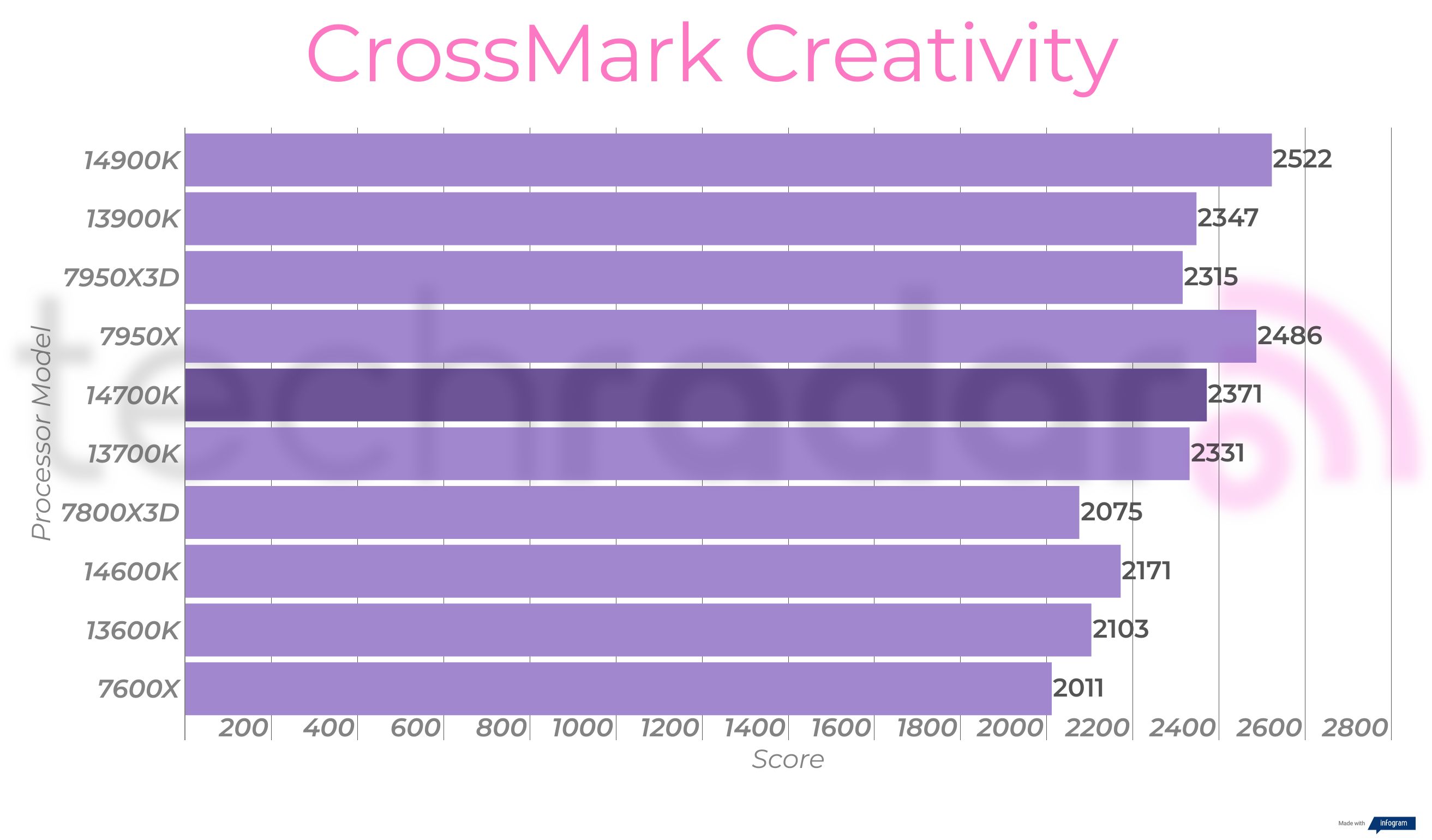
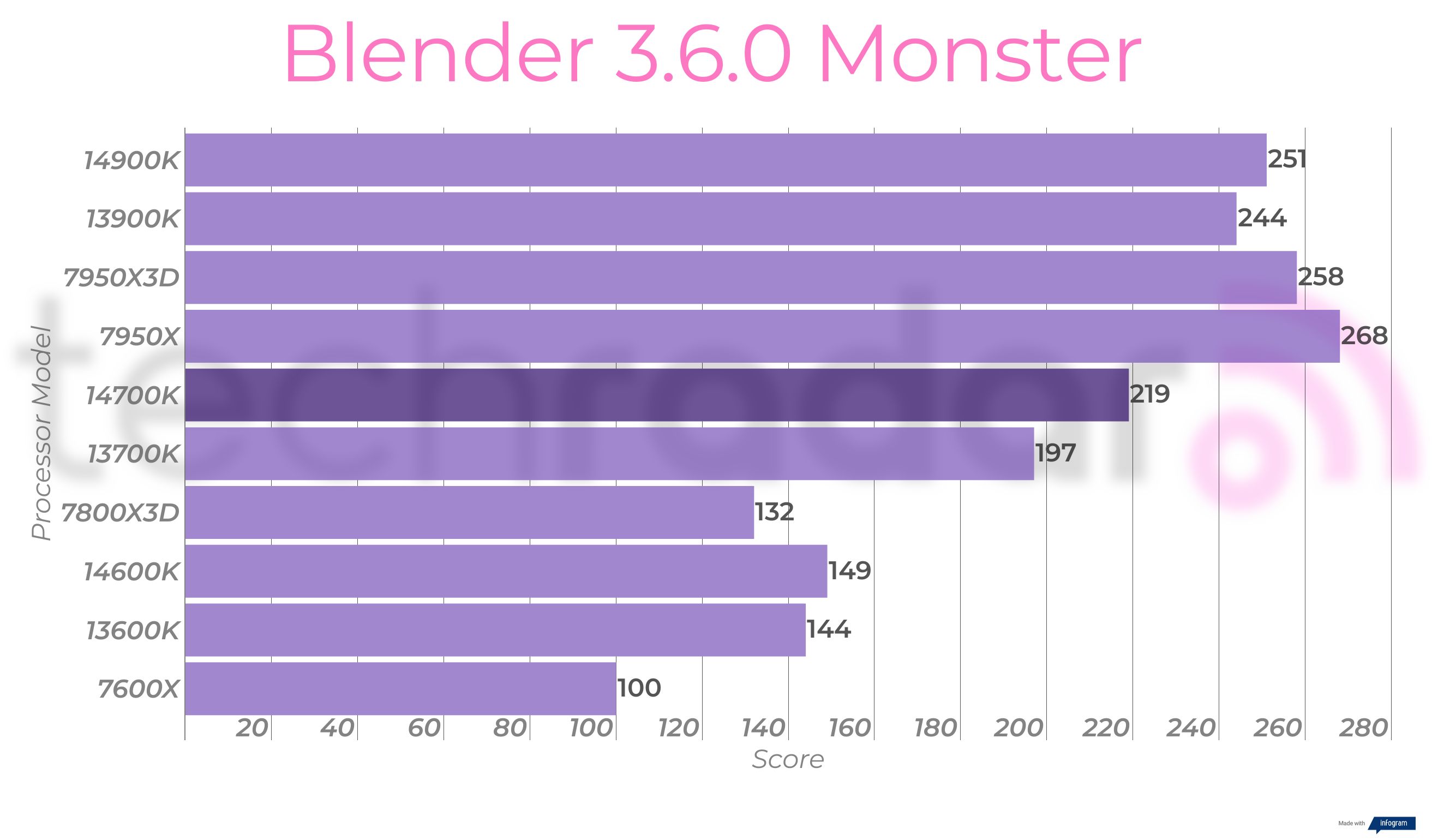
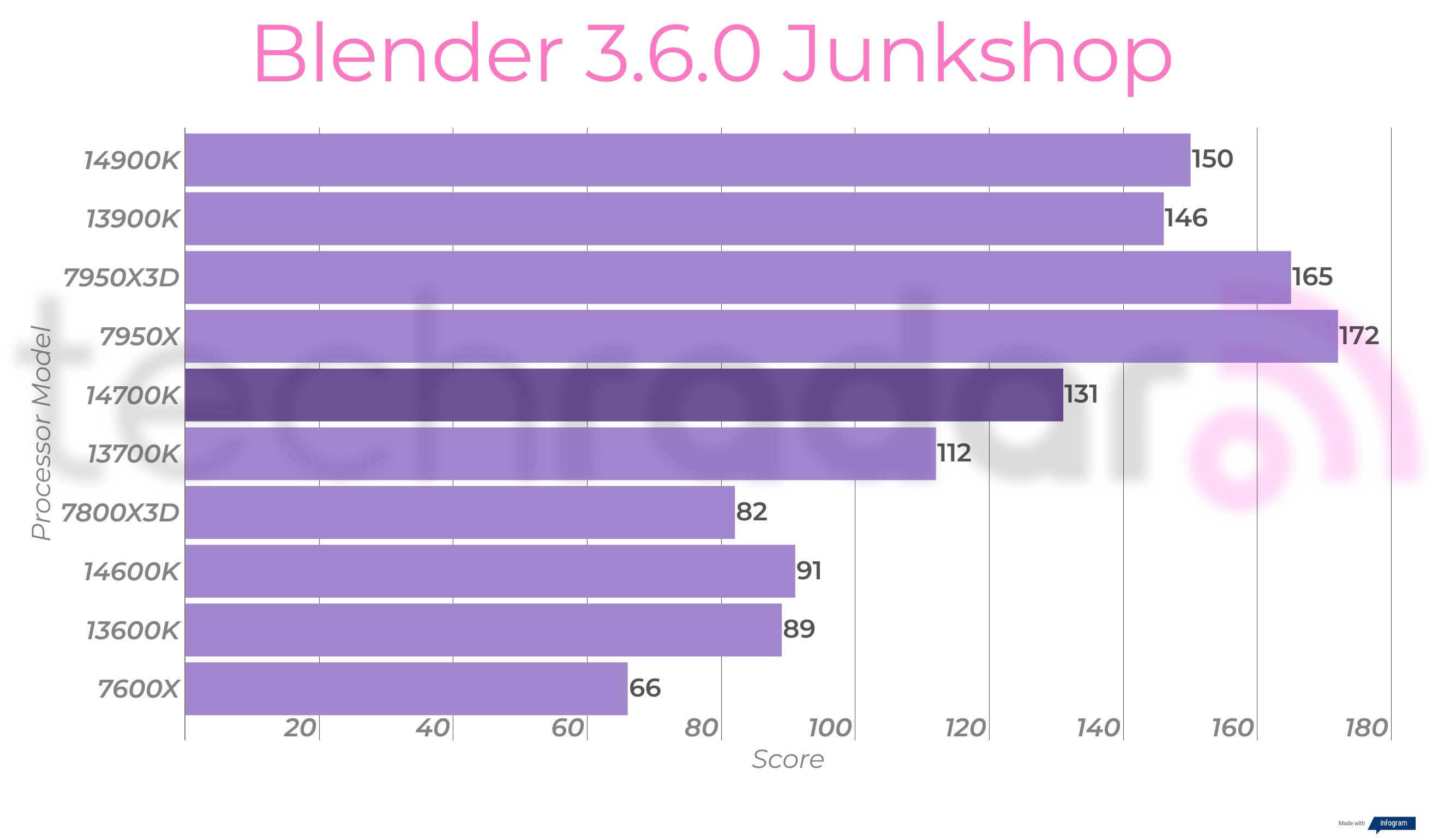
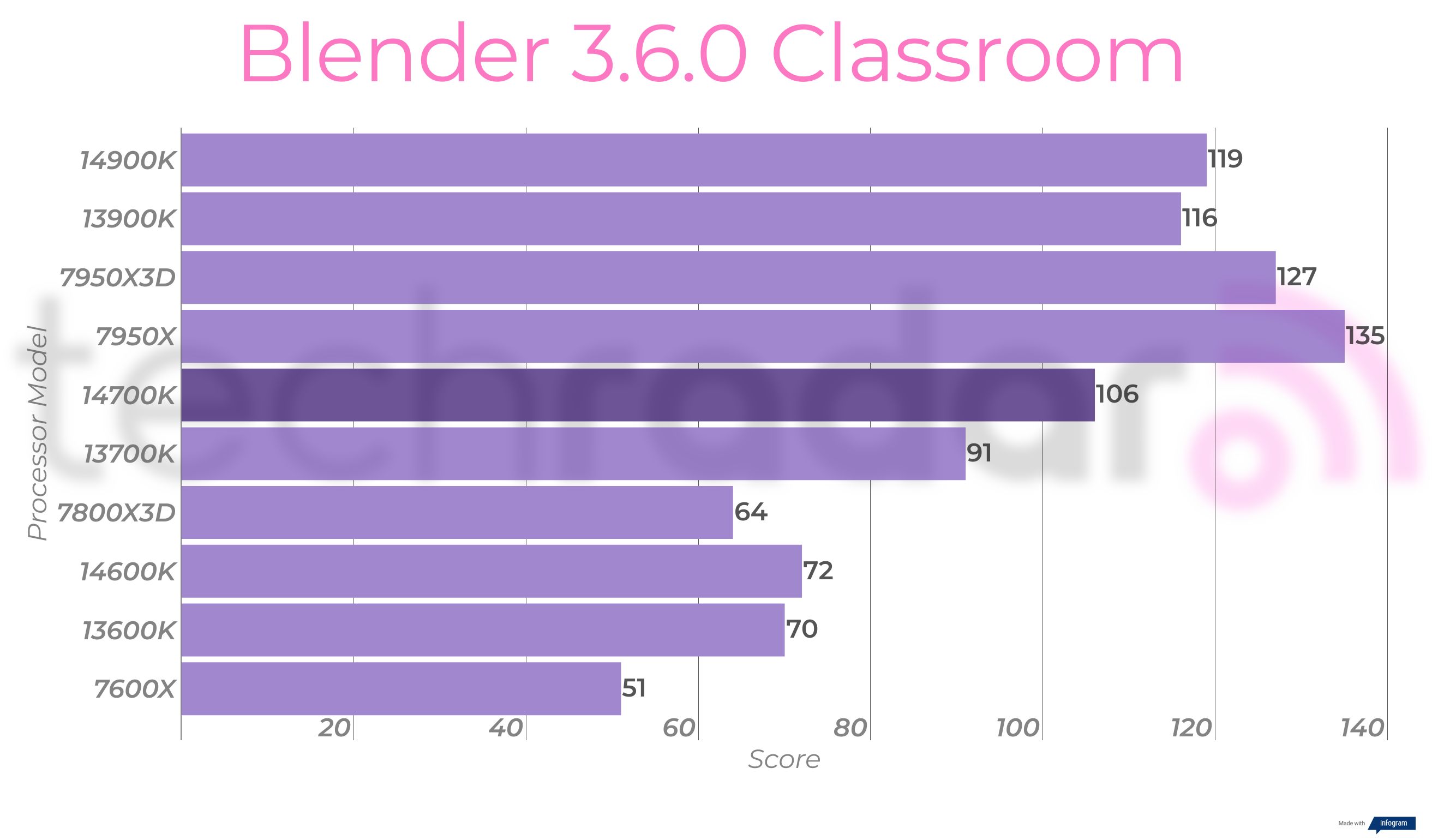
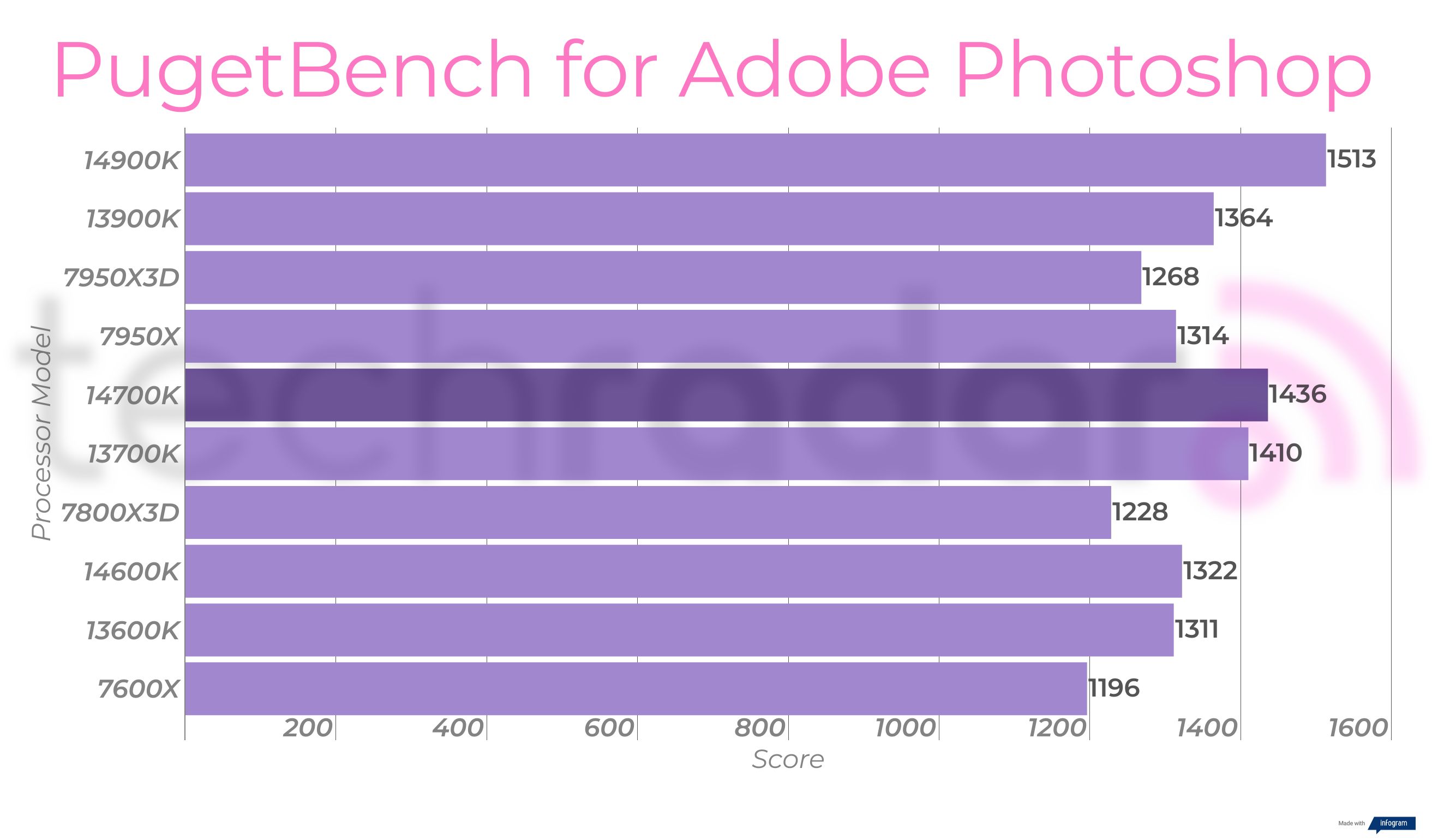
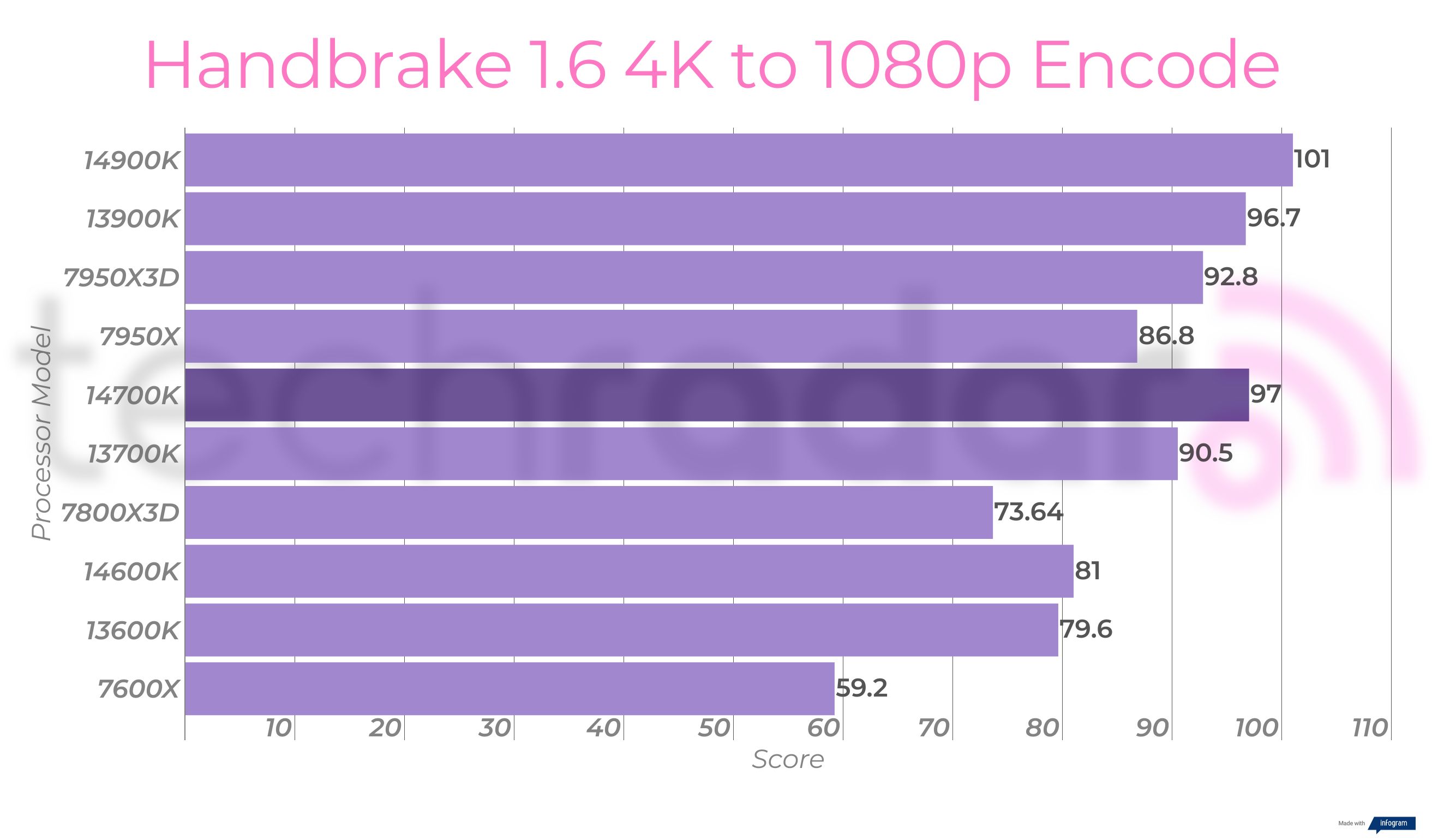
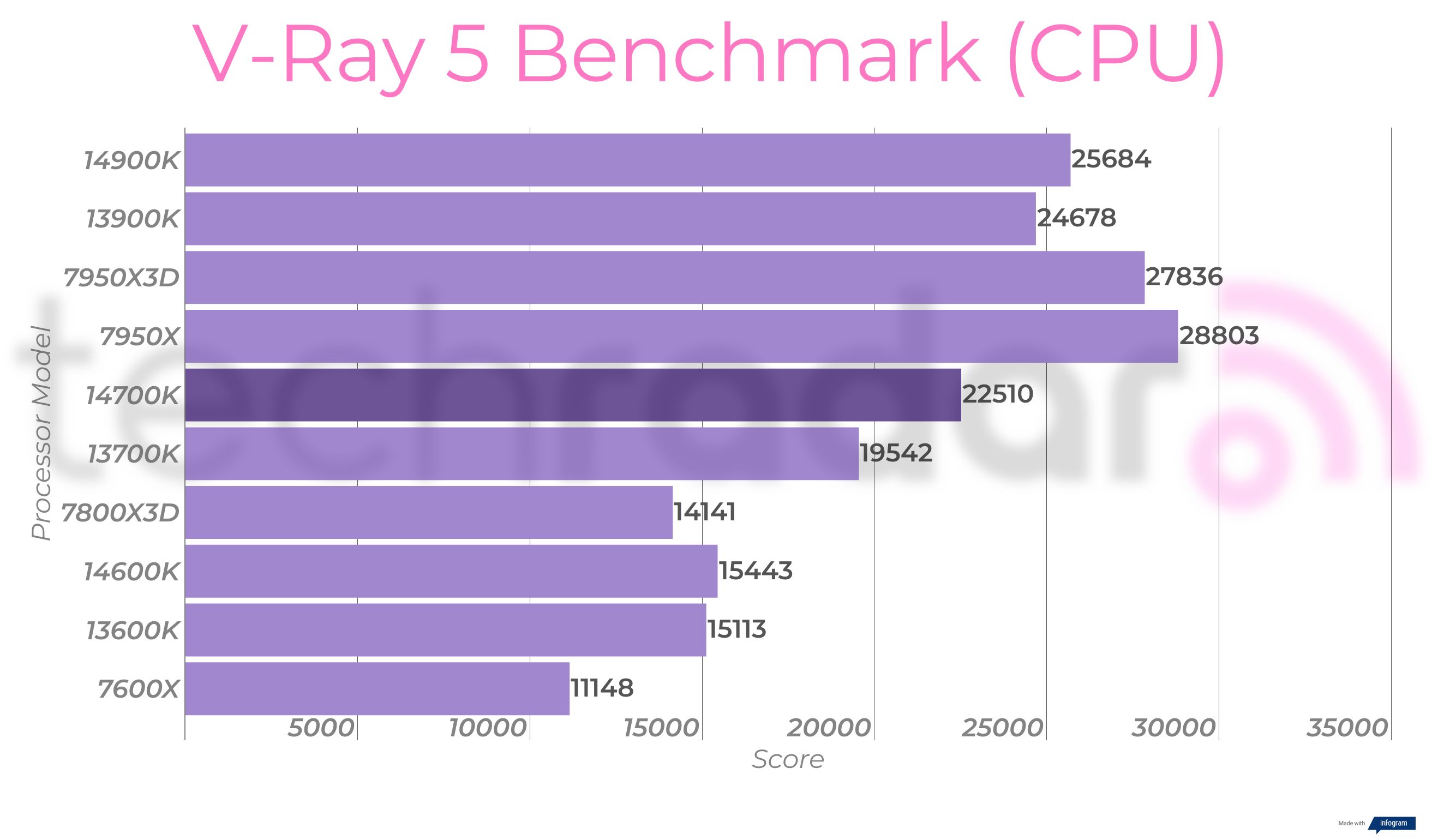
In creative workloads, the 14700K also performs exceptionally well, beating out the 13900K on everything except 3D model rendering, which is something that is rarely given to a CPU to do any when even the best cheap graphics cards can process Blender or V-Ray 5 workloads many times faster than even the best CPU can.
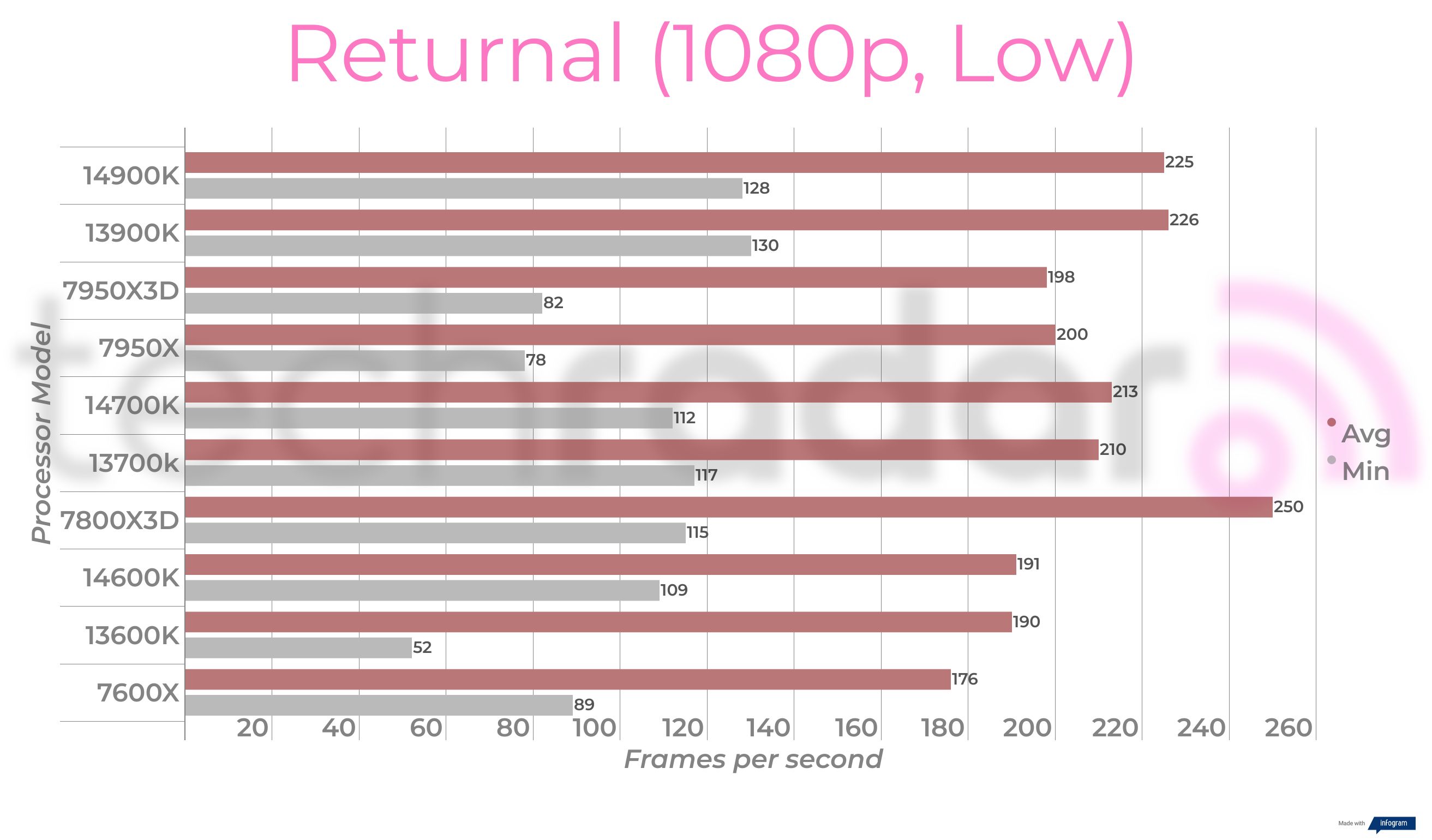
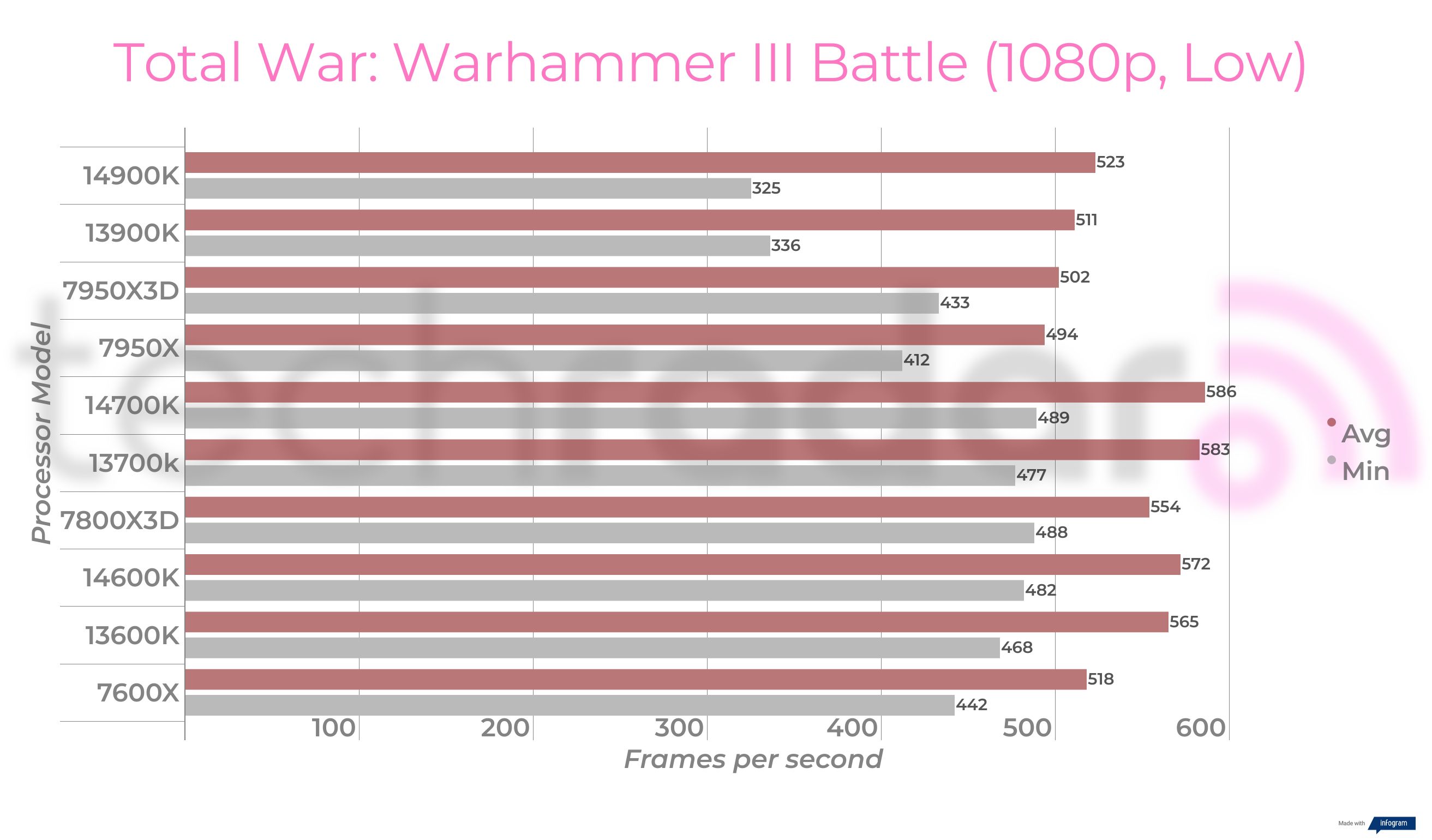
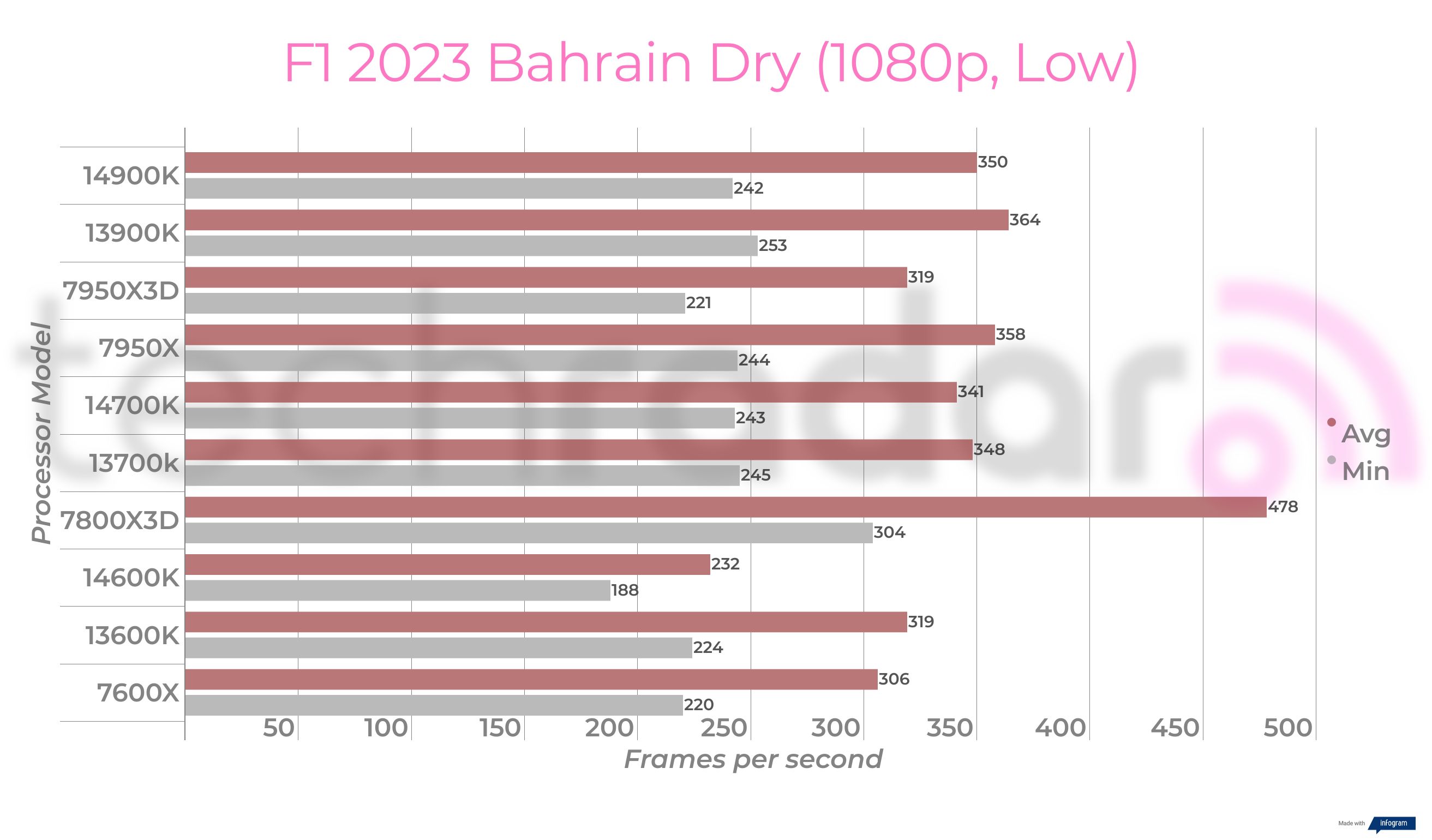
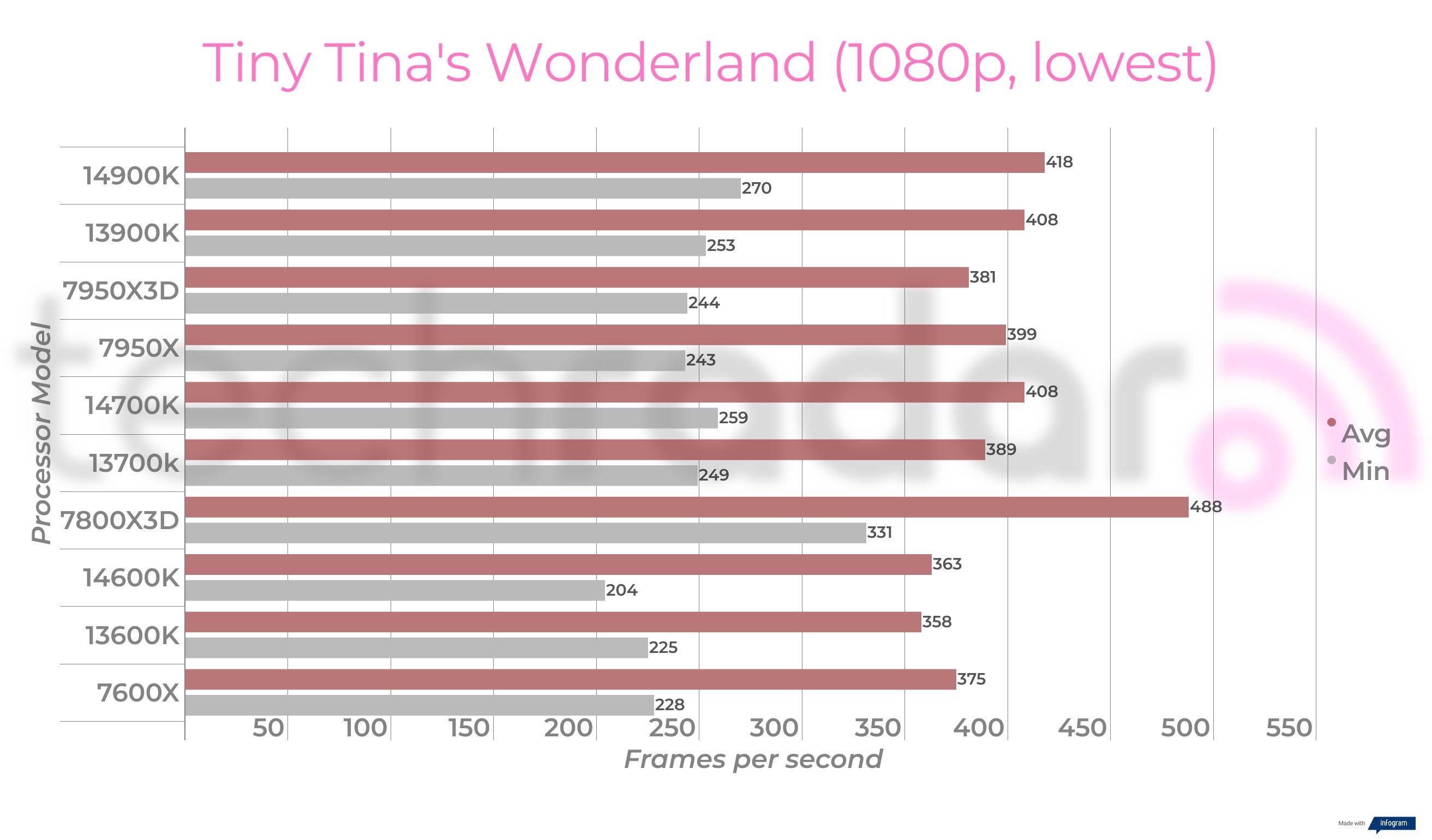
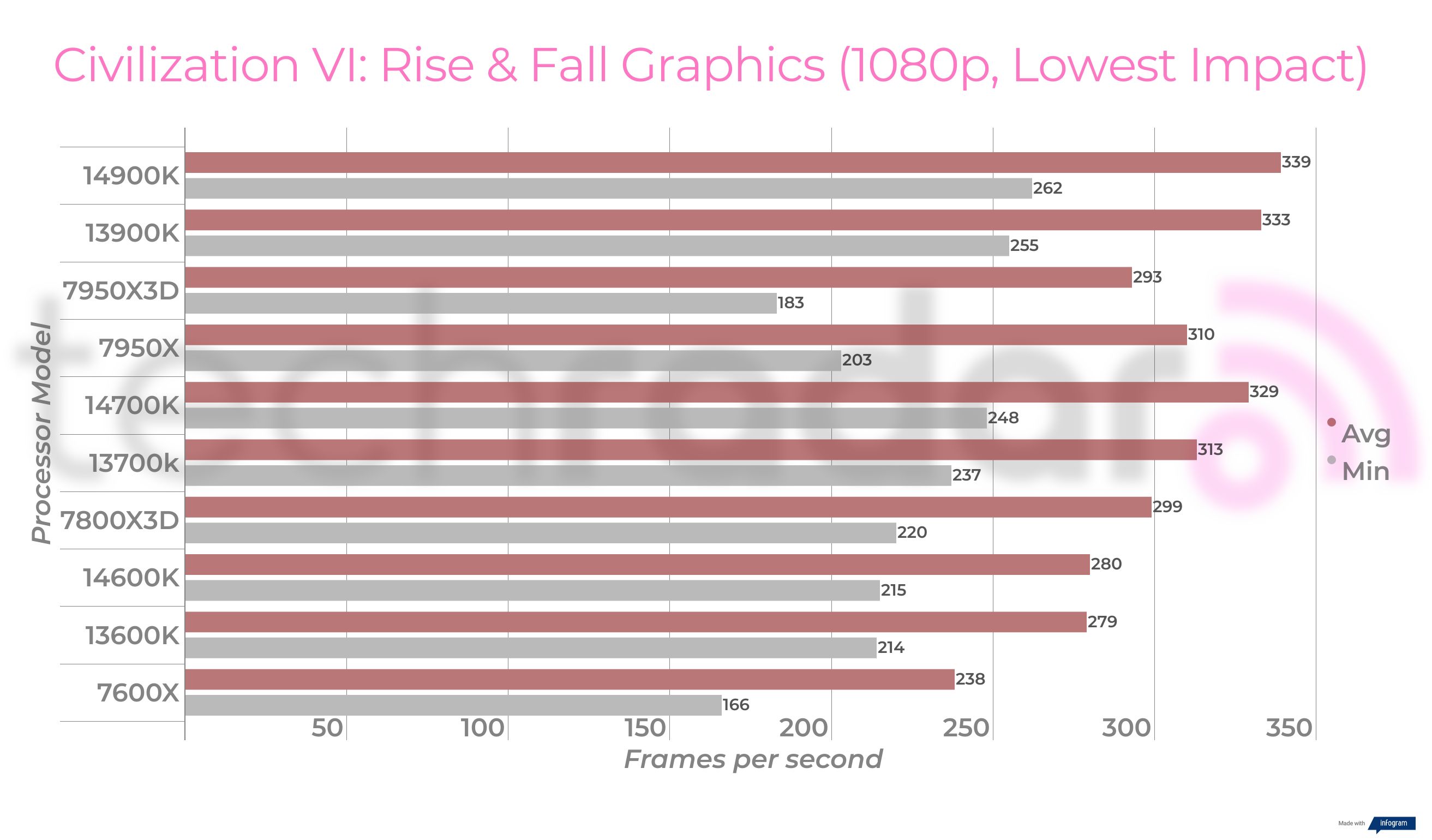
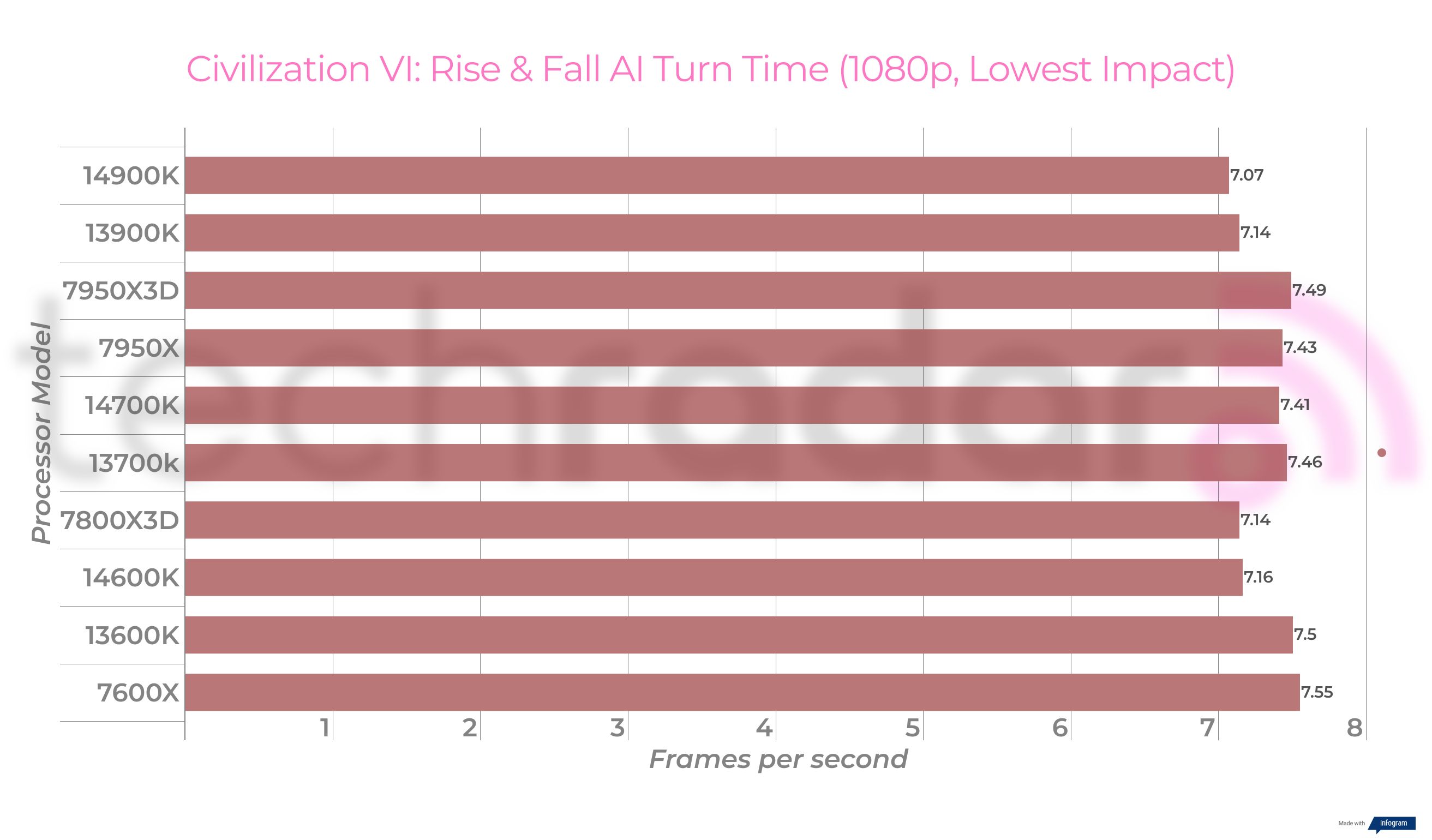
In gaming performance, the Core i7-14700K scores a bit of an upset over its launch sibling, the i9-14900K, besting it in gaming performance overall, though it has to be said that it got some help from a ridiculously-high average fps in Total War: Warhammer III's battle benchmark. In most cases, the i7-14700K came up short of the 13900K and 14900K, but not by much.
And while it might be tempting to write off Total War: Warhammer III as an outlier, one of the biggest issues with the Core i9's post-Alder Lake is that they are energy hogs and throttle under load quickly, pretty much by design.
In games like Total War: Warhammer III where there are a lot of tiny moving parts to keep track of, higher clock speeds don't necessarily help. When turbo clocks kick into high gear and cause throttling, the back-and-forth between throttled and not-throttled can be worse over the course of the benchmark than the cooler but consistent Core i7s, which don't have to constantly ramp up and ramp down.
So the 14700K isn't as much of an outlier as it looks, especially since the 13700K also excels at Total War: Warhammer III, and it too beats the two Core i9s. Total War: Warhammer III isn't the only game like this, and so there are going to be many instances where the cooler-headed 14700K steadily gets the work done while the hot-headed i9-13900K and 14900K sprint repeatedly, only to effectively tire themselves out for a bit before kicking back up to high gear.
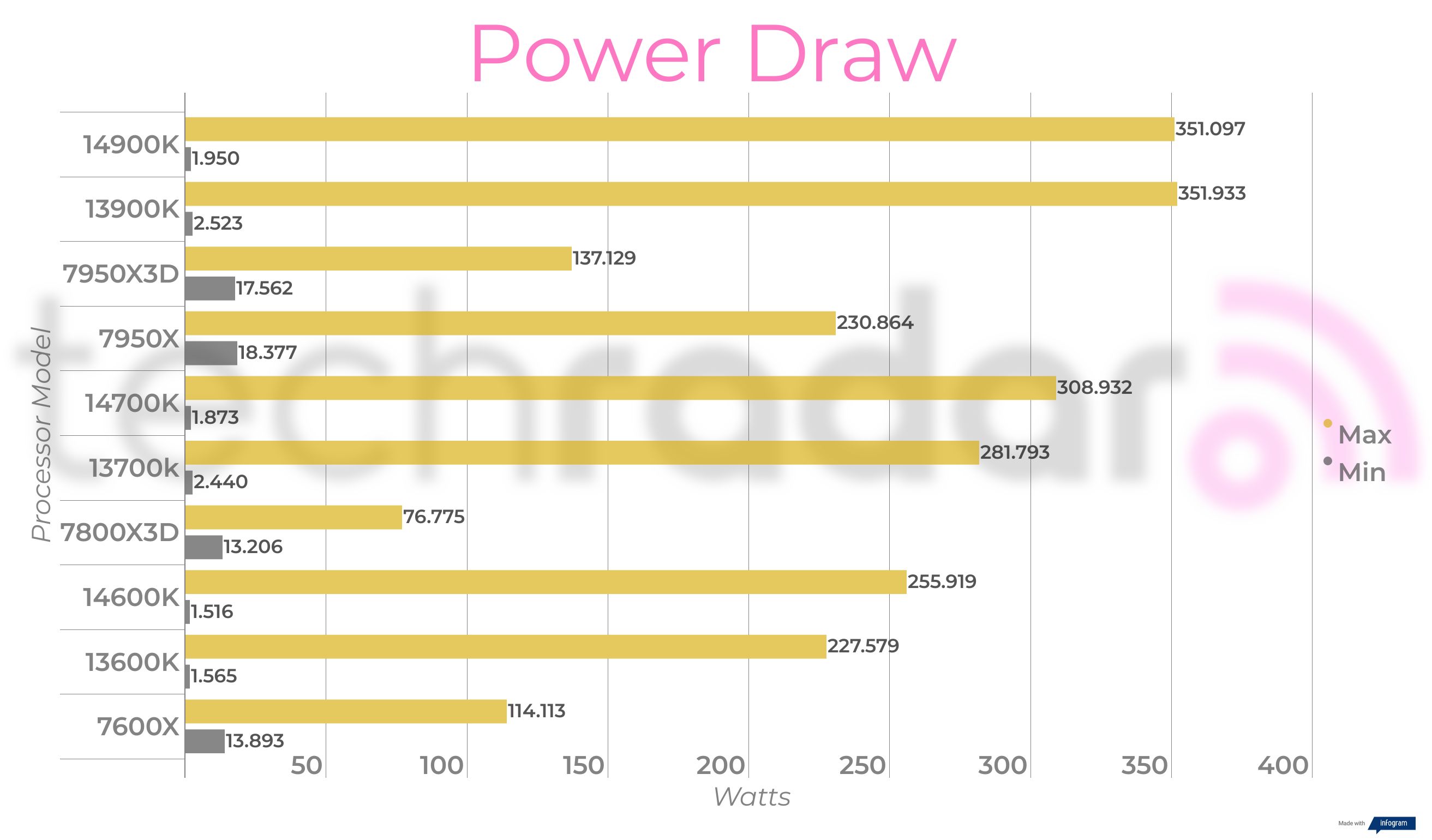
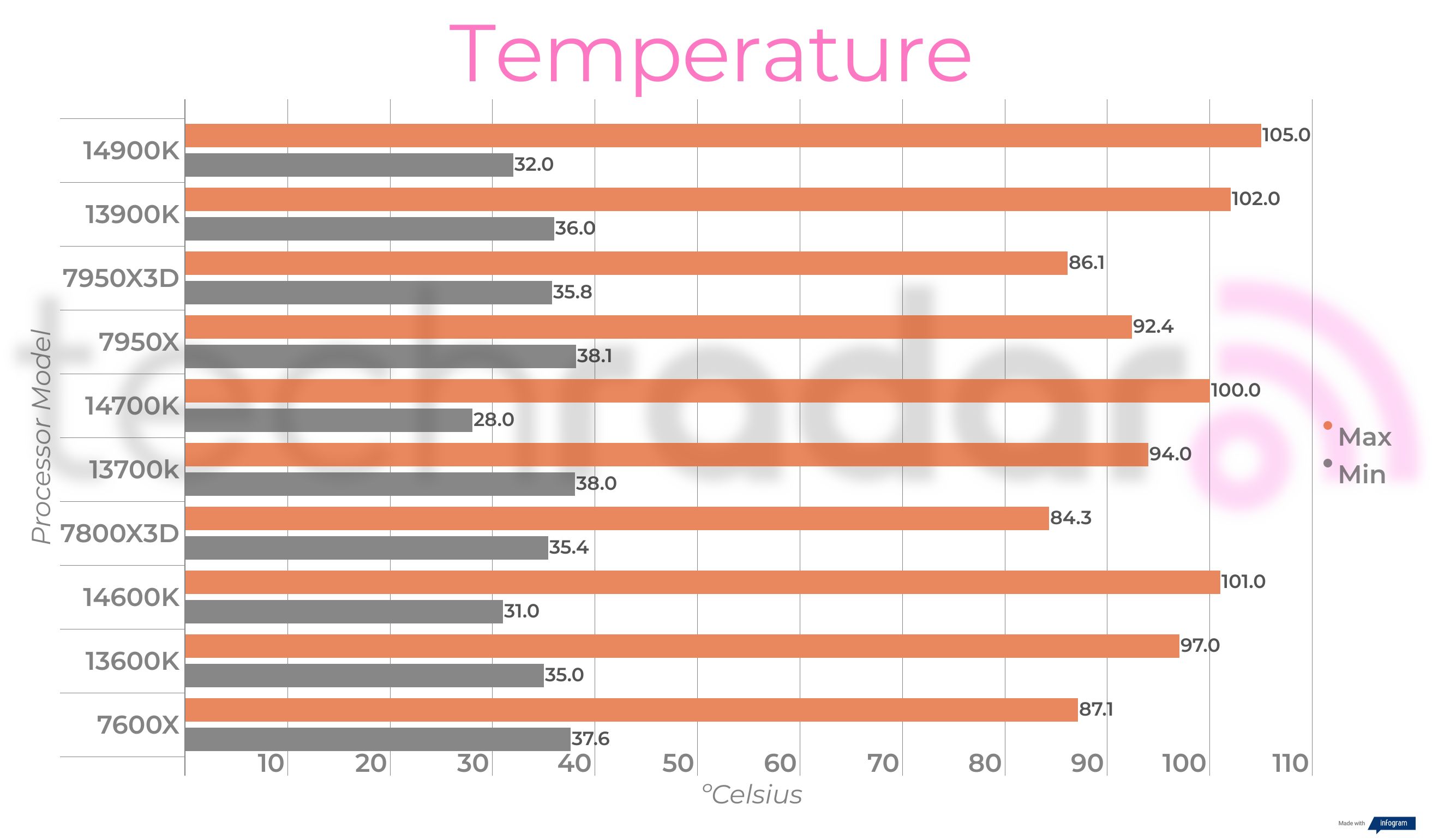
The additional efficiency cores might not draw as much power as the performance cores, but the additional power is still noticeable. The 14700K pulls down nearly 30W more watts than the 13700K, though it is still a far cry from the Core i9-13900K's power usage.
This additional power also means that the Core i7-14700K runs much hotter than its predecessor, maxing out at 100ºC, triggering the CPU to throttle on occasion. This is something that the i7-13700K didn't experience during my testing at all, so you'll need to make sure your cooling solution is up to the task here.
- Performance: 4.5 / 5
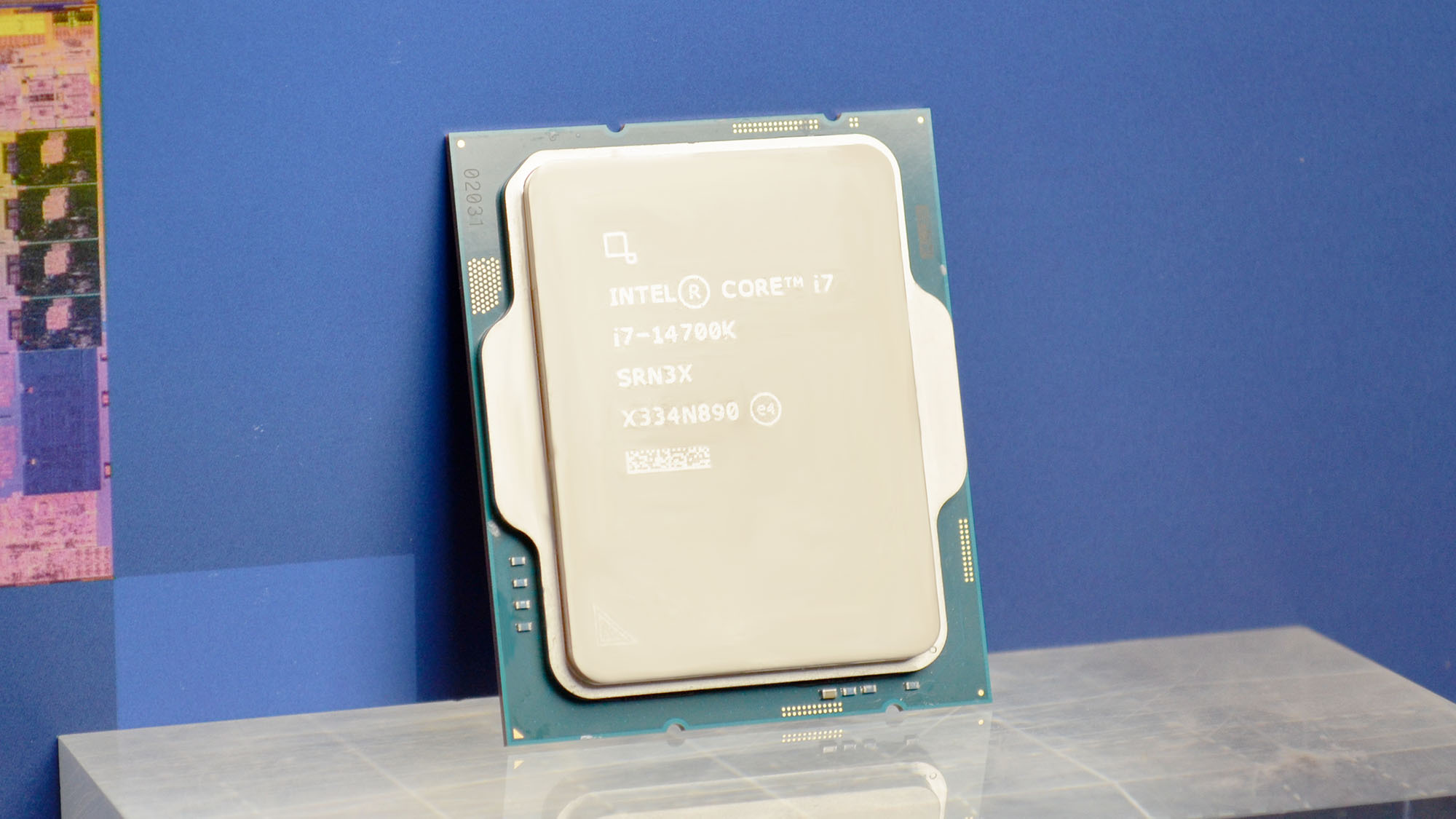
Intel Core i7-14700K: Verdict
- Fantastic single-core performance
- Intel's best gaming processor, and second overall behind the Ryzen 7 7800X3D
- Best value of any midrange processor
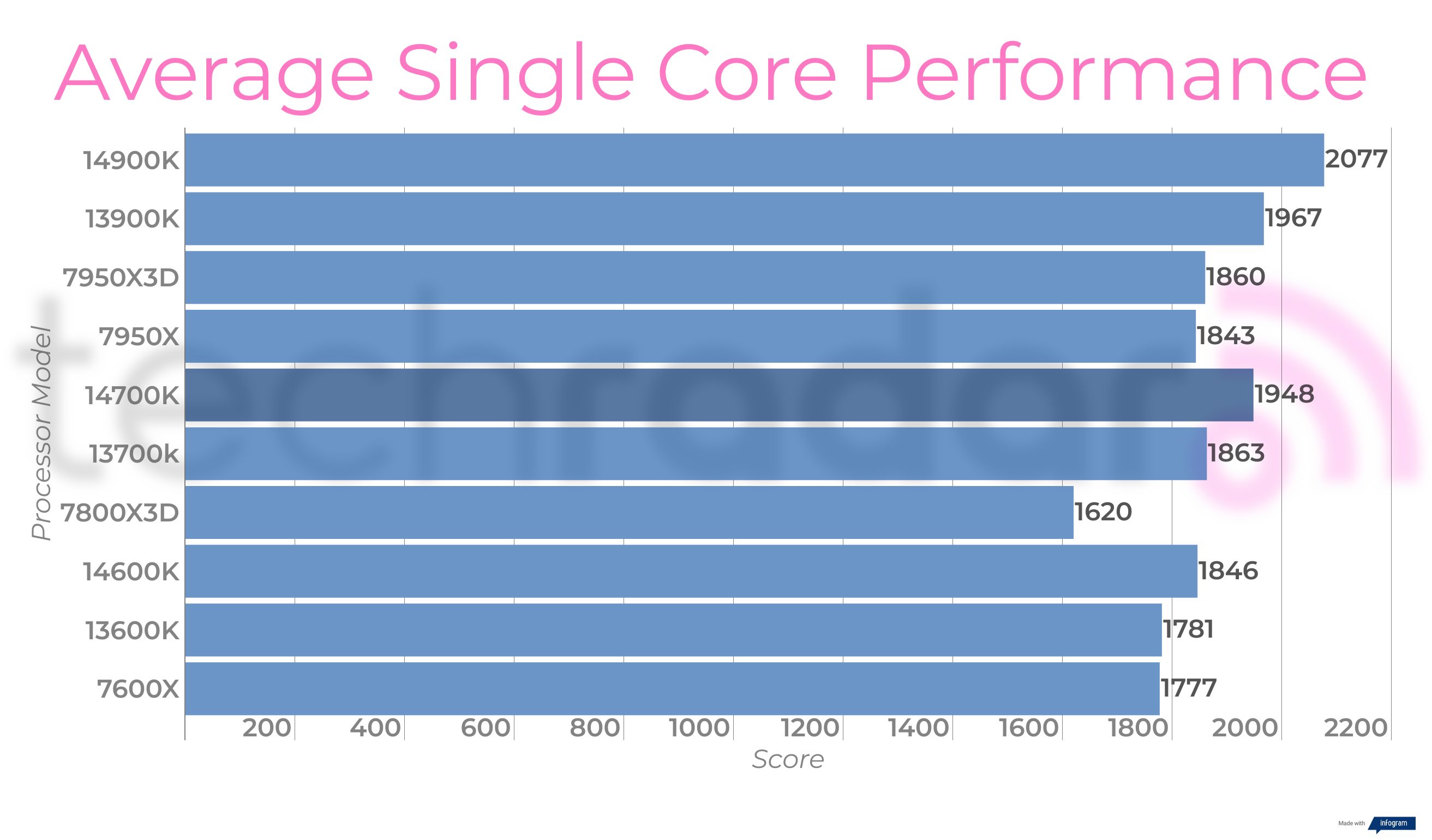
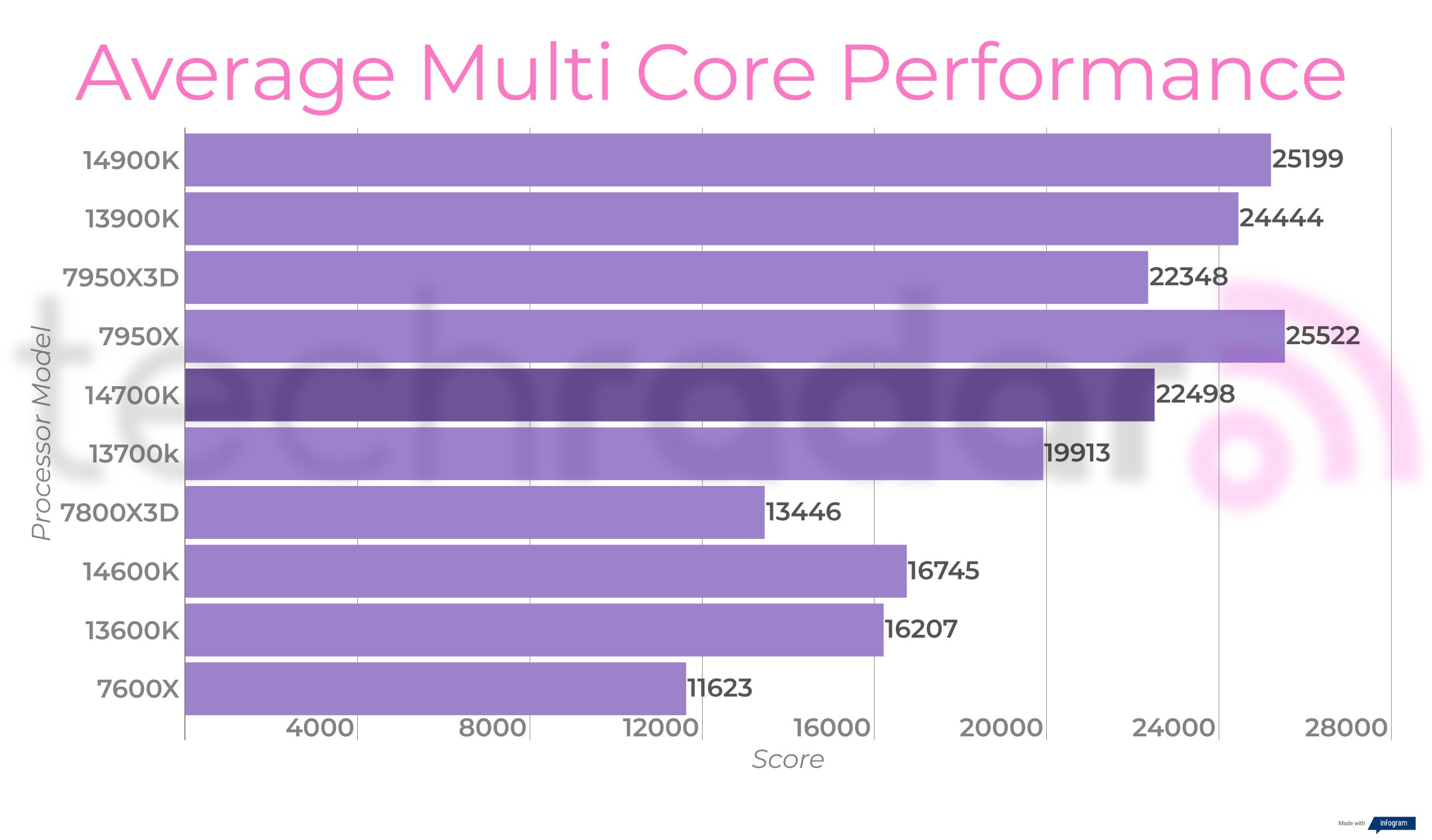
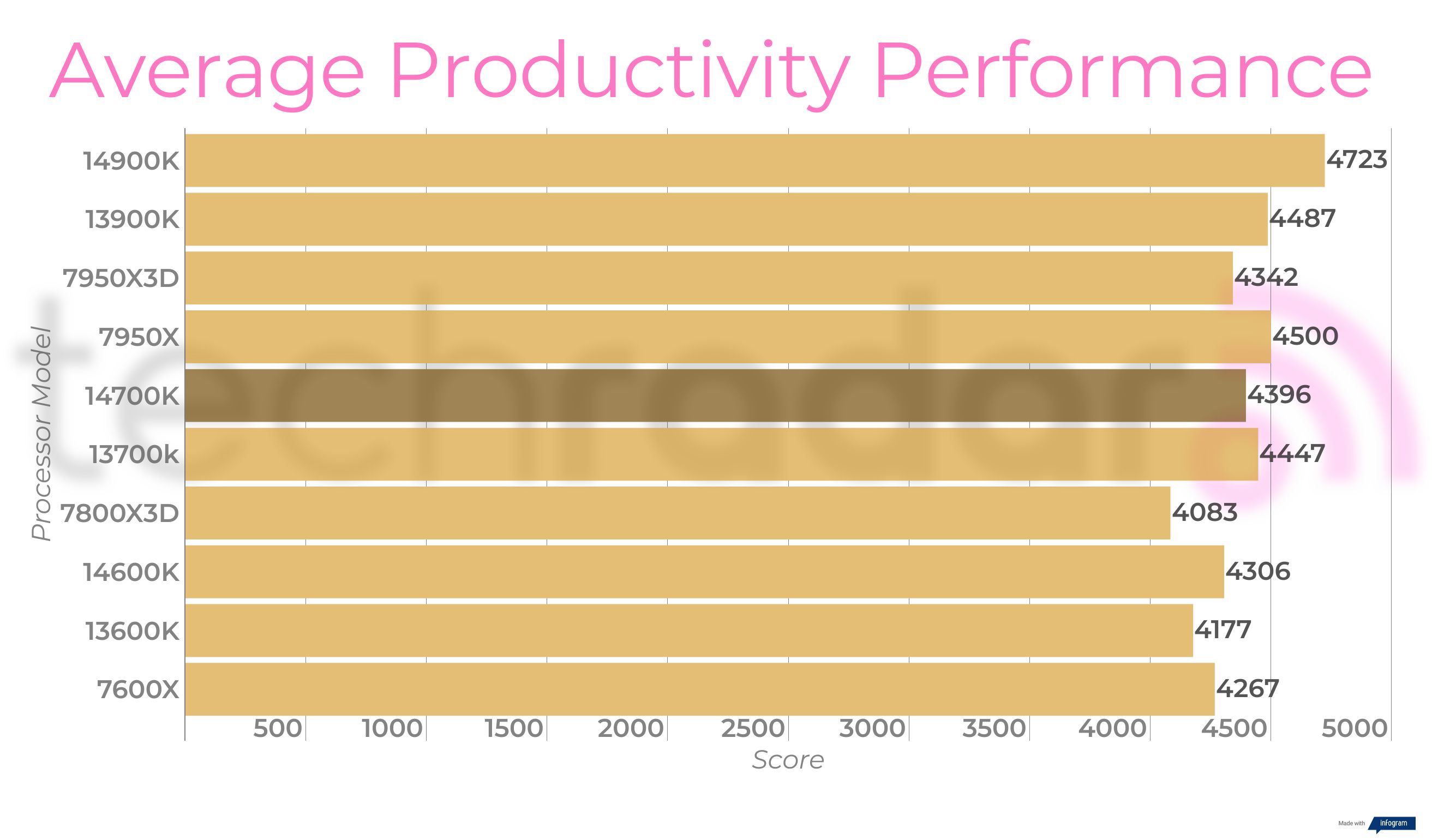
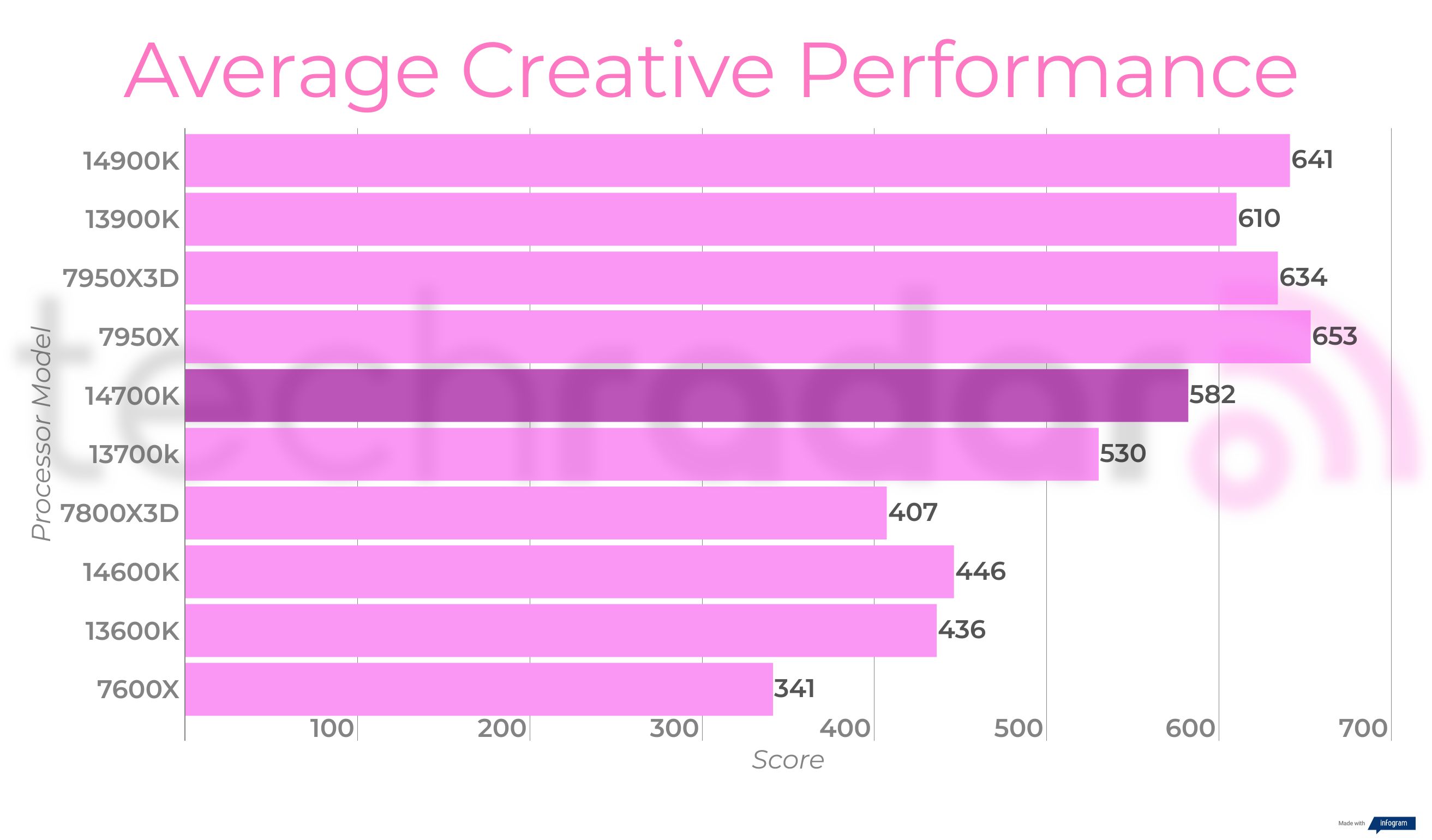
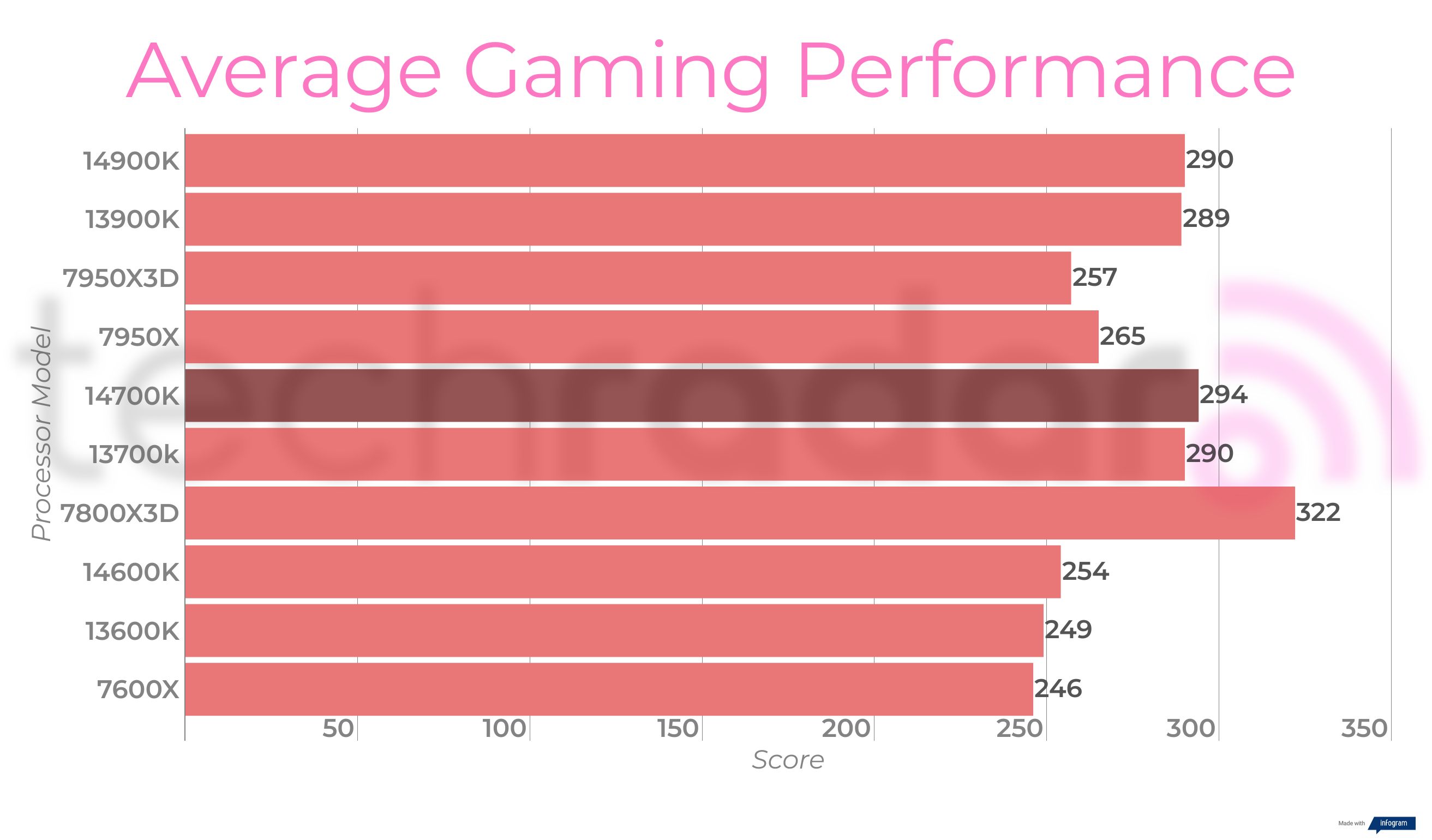
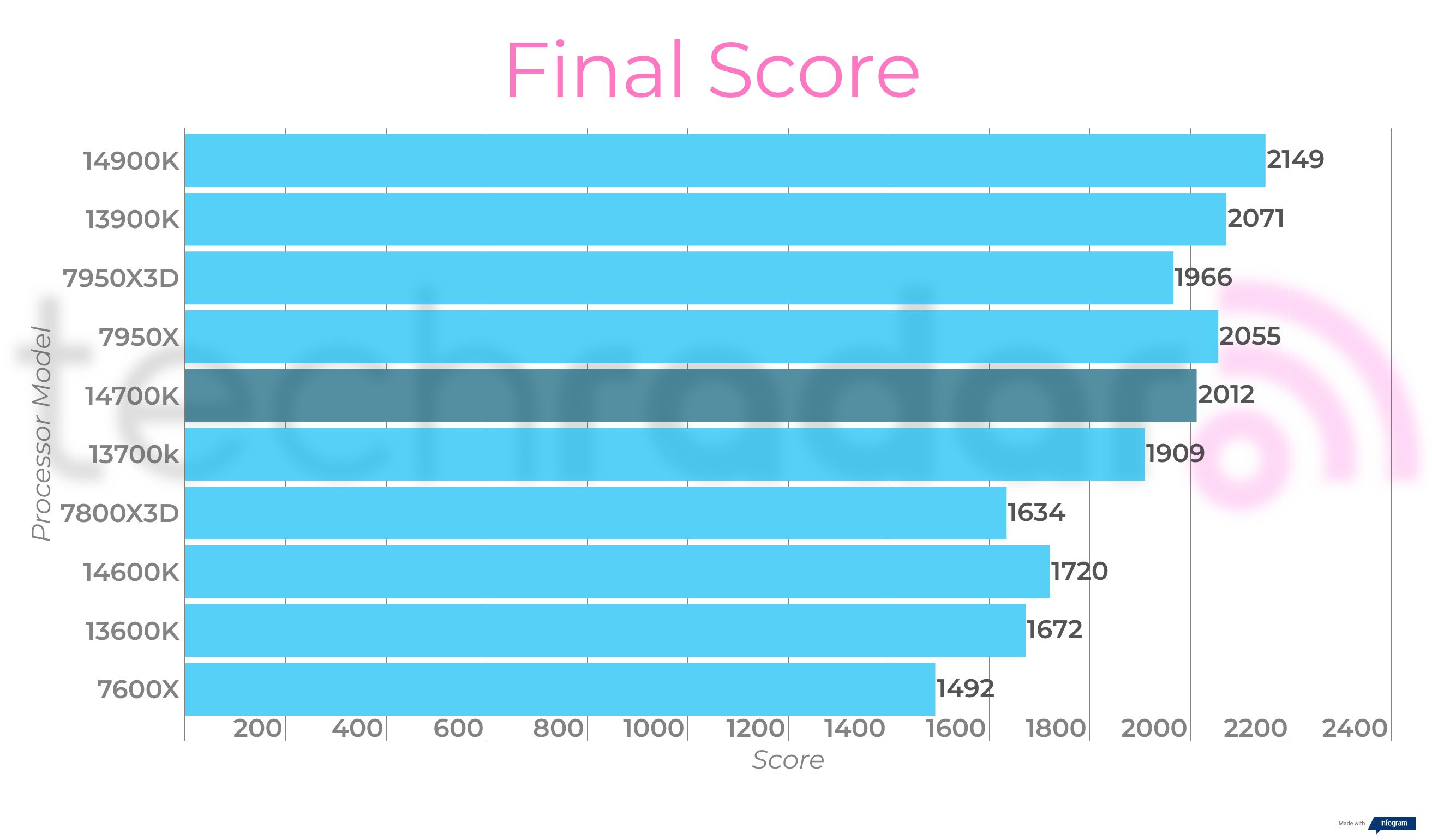
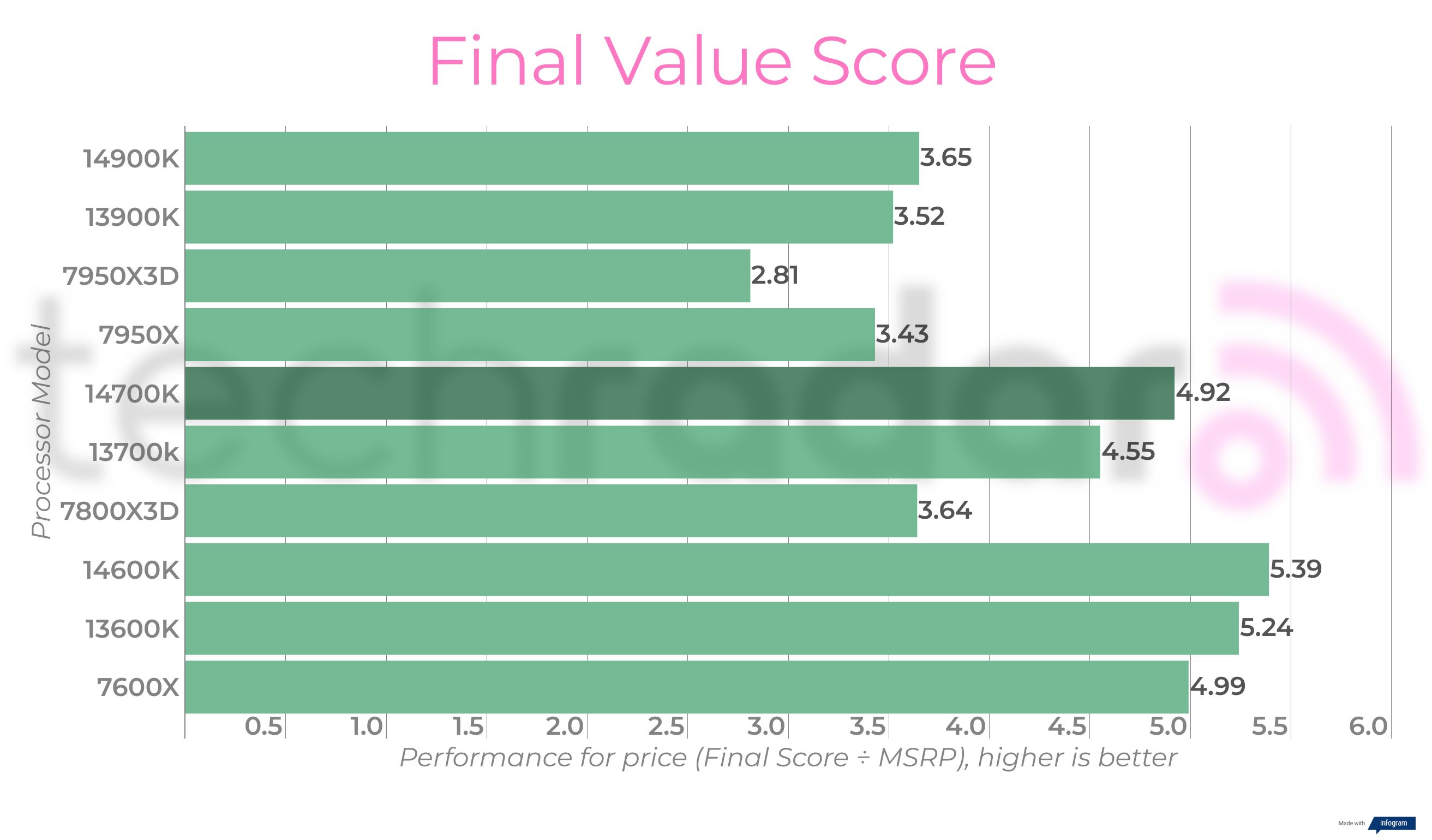
Ultimately, the Intel Core i7-14700K is the best processor in the Raptor Lake Refresh line-up, offering very competitive performance for a better price than its predecessor and far better one than comparable chips one tier higher in the stack.
It's not without fault, though. It's not that much better than the i7-13700K, so everything I'm saying about the i7-14700K might reasonably apply to its predecessor as well. And honestly, the i7-14700K doesn't have too high a bar to clear to standout from its launch siblings, so it's performance might only look as good in comparison to the i9 and i5 standing behind it.
But, the numbers don't lie, and the Intel Core i7-14700K displays flashes of brilliance that set it apart from its predecessor and vault it into competition with the top-tier of CPUs, and that's quite an achievement independent of how the rest of Raptor Lake Refresh fares.
| Attributes | Notes | Rating |
|---|---|---|
| Value | As a $400 processor, its not cheap, but it's level of performance make this chip an exceptional value. | 4 / 5 |
| Specs & features | As the only Raptor Lake Refresh chip to get a spec upgrade, there is enough new here to make it a worthwhile upgrade. | 4 / 5 |
| Performance | While not a whole lot better than its predecessor overall, it's performance gains are enough to put in on par with the Core i9-13900K. | 4.5 / 5 |
| Total | Of all the Raptor Lake Refresh chips thus far, the i7-14700K is easily the one most people should buy, making it easy to recommend. | 4.17 / 5 |
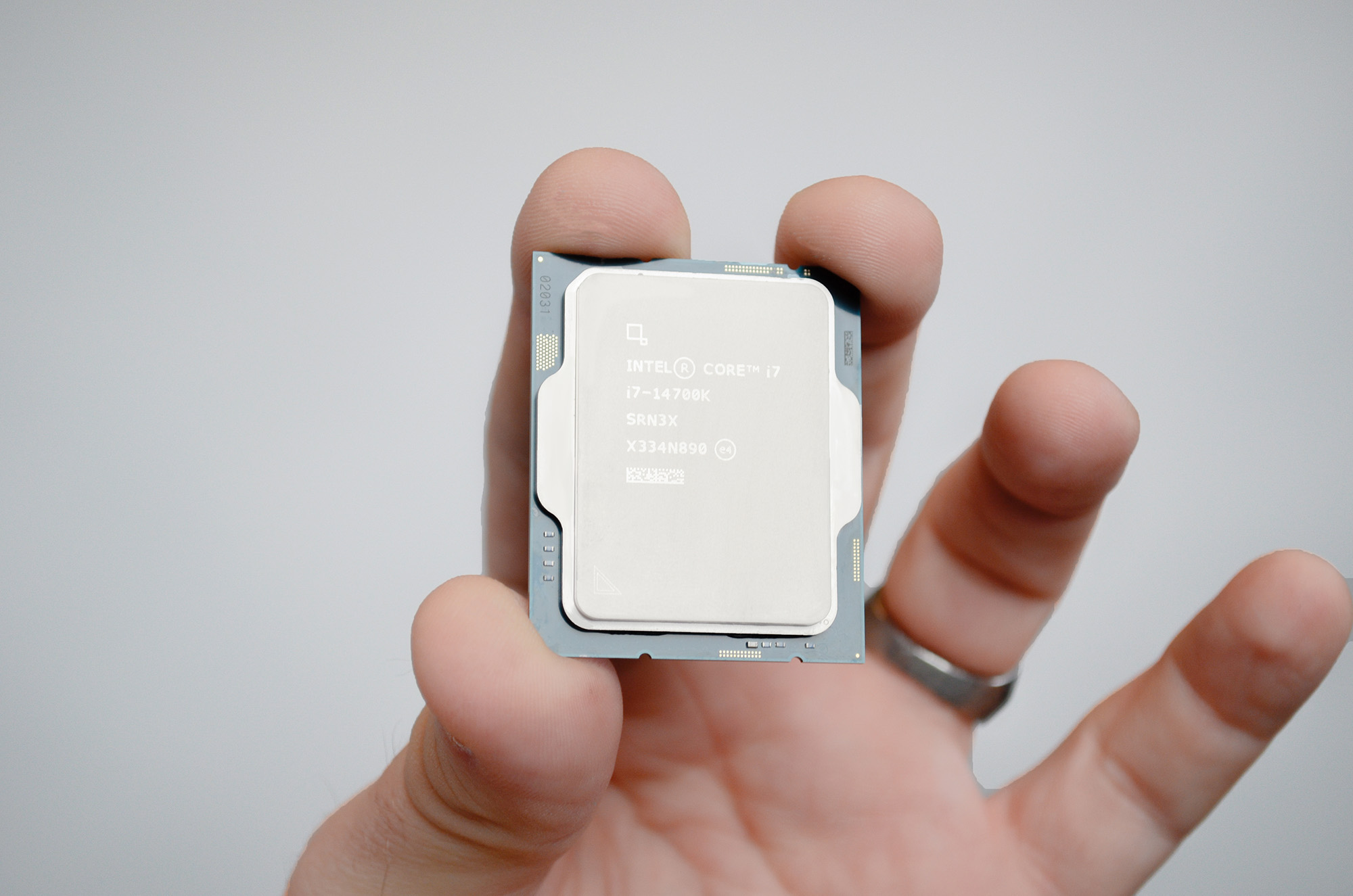
Should you buy the Intel Core i7-14700K?
Buy the Intel Core i7-14700K if...
You want the most value out of a midrange processor
With performance well above its class at times, the i7-14700K offers a fantastic performance to price ratio.
You're upgrading from a 12th-gen processor
If you skilled the 13th-gen Raptor Lake chips, this processor will feel like a revelation, especially for the price.
You want the best Intel processor for gaming
While it's not the fastest in every game, it keeps pace with the i9s while occasionally blowing them away.
Don't buy it if...
You already have an i7-13700K or i9-13900K
If you're coming from one of the higher-end 13th-gen chips, you won't get much out of this chip, if you get any improvement at all.
You're on a budget
While this chip is cheaper than the Core i9-14900K, it's still expensive, and there are cheaper processors with similar, or at least acceptable, performance.
You're able to hold out until Meteor Lake
The new Intel Core Ultra 7 is coming in 2024 and it's a much more innovative processor than the 14700K, so you might want to hold off and spend your money on that chip instead, which will require more upgrades than just the CPU.
Also Consider
| Header Cell - Column 0 | Intel Core i7-14700K | Intel Core i7-13700K | AMD Ryzen 7 7800X3D |
|---|---|---|---|
| Price | $409 (about £325 / AU$610) | $419 (about £335 / AU$610) | $449 (about £385 / AU$650) |
| Performance Cores | 8 | 8 | 8 |
| Efficiency Cores | 12 | 8 | 0 |
| Threads | 28 | 24 | 16 |
| P-Core Base Clock | 3.40GHz | 3.40GHz | 4.20GHz |
| P-Core Boost Clock | 5.50GHz | 5.40GHz | 5.00GHz |
| E-Core Base Clock | 2.50GHz | 2.50GHz | N/A |
| E-Core Boost Clock | 4.30GHz | 4.20GHz | N/A |
| Cache | 61MB | 54MB | 104MB |
| TDP | 125W | 125W | 120W |
| Motherboard Socket | LGA 1700 | LGA 1700 | AM5 |
If my Intel Core i7-14700K review has you considering other options, here are two processors to consider...
Intel Core i7-13700K
Intel's last-generation workhorse, the i7-13700K is still one of the best processors you can buy for everyday performance, and with the 14th-gen launch, the price of the 13700K should drop, making it an even better option.
Read the full Intel Core i7-13700K review
AMD Ryzen 7 7800X3D
The AMD Ryzen 7 7800X3D might not have the kind of general performance prowess of the i7-13700K, but this chip isn't about all that. It's strictly for gaming at your best at a decent enough price, and few do it better than the 7800X3D.
Read the full AMD Ryzen 7 7800X3D review
How I tested the Intel Core i7-14700K
- I spent nearly two weeks testing the Intel Core i7-14700K
- I ran comparable benchmarks between this chip and rival midrange processors
- I gamed with this chip extensively
These are the specs for the test system used for this review:
Intel Motherboard: MSI MPG Z790E Tomahawk Wifi
AMD Motherboard: ASRock X670E Steel Legend
CPU Cooler: MSI MAG Coreliquid E360 AIO
Memory: 32GB SK Hynix DDR5-4800
SSD: Samsung 990 Pro
PSU: Thermaltake PF3 1050W ATX 3.0
Case: Praxis Wetbench
I spent about two weeks testing the Intel Core i7-14700K and its competition, primarily for productivity work, gaming, and content creation.
I used a standard battery of synthetic benchmarks that tested out the chip's single core, multi core, creative, and productivity performance, as well as built-in gaming benchmarks to measure its gaming chops.
I then ran the same tests on rival chips from AMD as well as the other 14th-gen chips in the Raptor Lake Refresh launch line-up and 13th-generation Raptor Lake processors. For Intel chips, I used the same motherboard, RAM, SSD, and graphics card to ensure I was isolating just the CPU's performance across every chip. For AMD chips, I used a comparable AM5 motherboard so differences in the motherboard configuration and circuitry are mitigated to the largest extent possible.
I've been testing and reviewing computer hardware for years now, and with an extensive background in computer science, I know processors in and out, and I use that knowledge to ensure every chip is thoroughly tested.
We pride ourselves on our independence and our rigorous review-testing process, offering up long-term attention to the products we review and making sure our reviews are updated and maintained - regardless of when a device was released, if you can still buy it, it's on our radar.
First reviewed October 2023

John (He/Him) is the Components Editor here at TechRadar and he is also a programmer, gamer, activist, and Brooklyn College alum currently living in Brooklyn, NY.
Named by the CTA as a CES 2020 Media Trailblazer for his science and technology reporting, John specializes in all areas of computer science, including industry news, hardware reviews, PC gaming, as well as general science writing and the social impact of the tech industry.
You can find him online on Bluesky @johnloeffler.bsky.social
